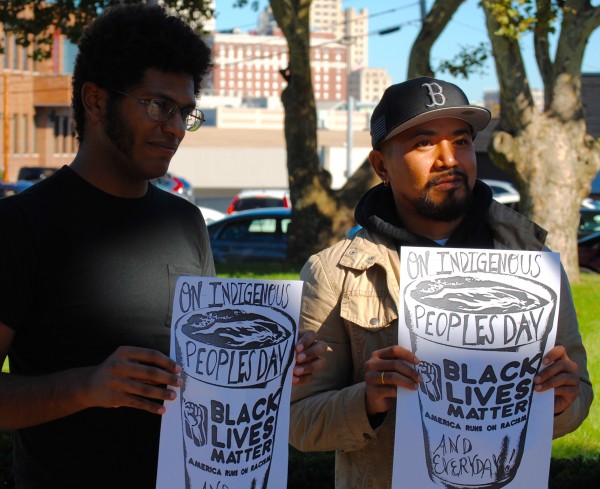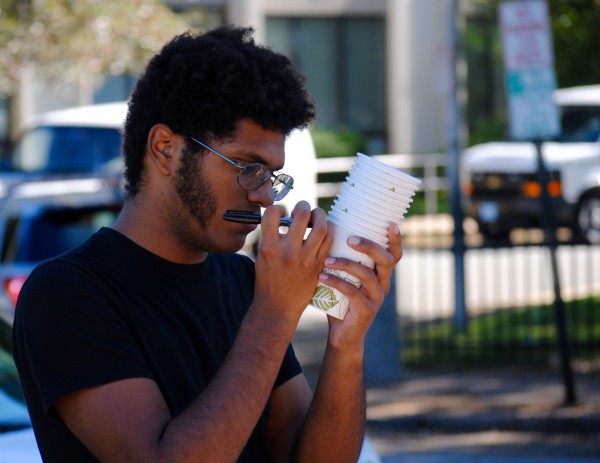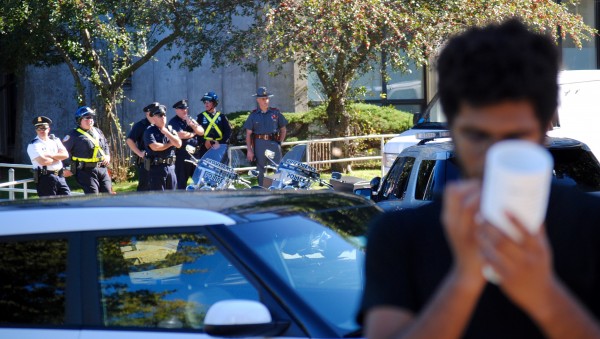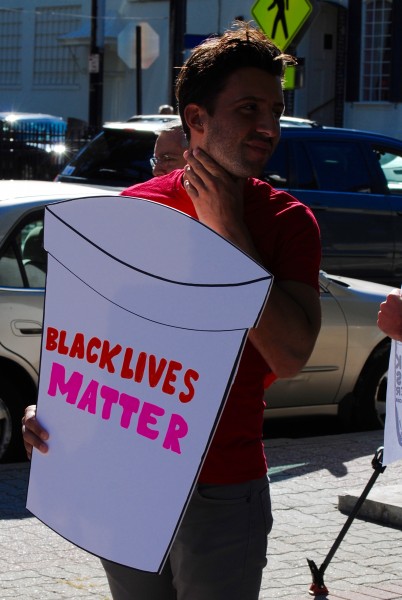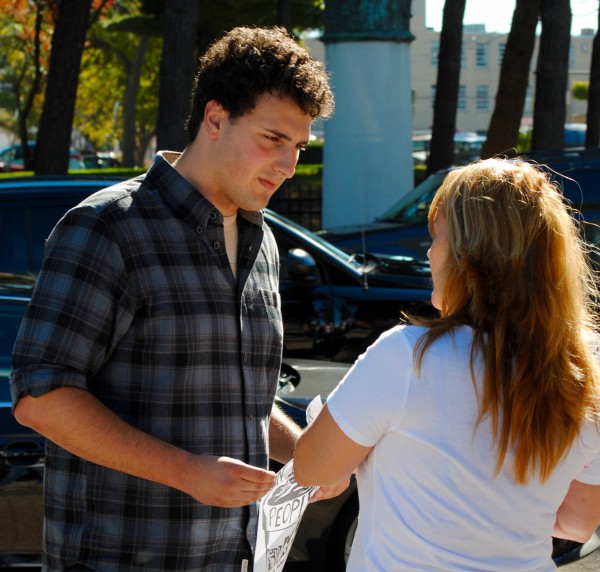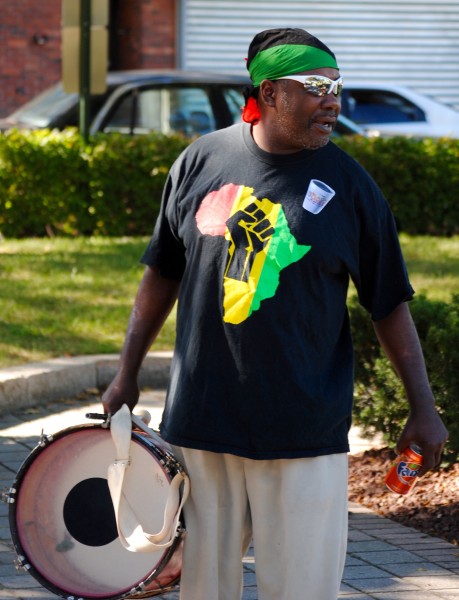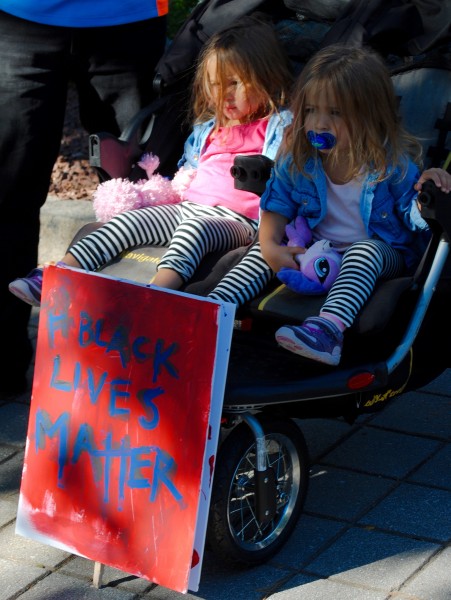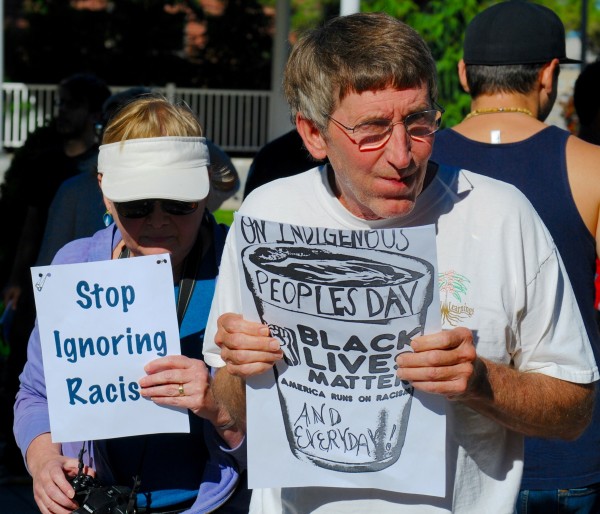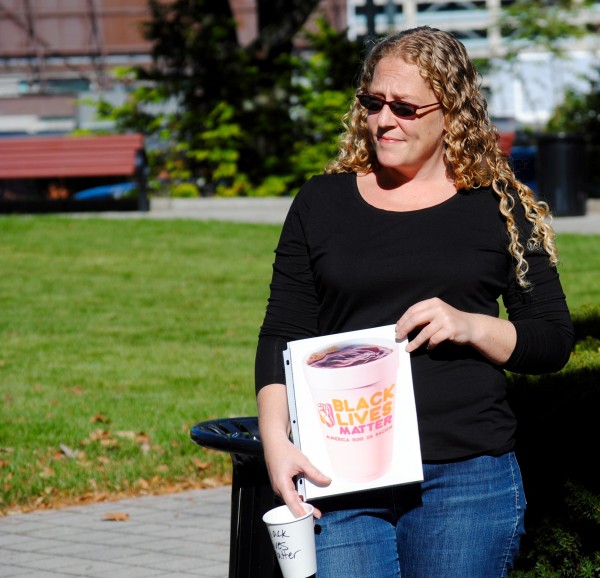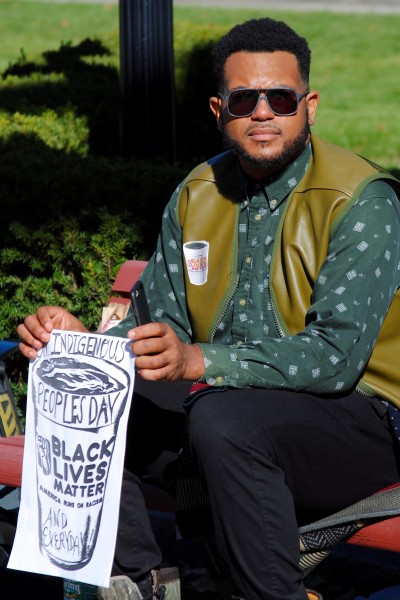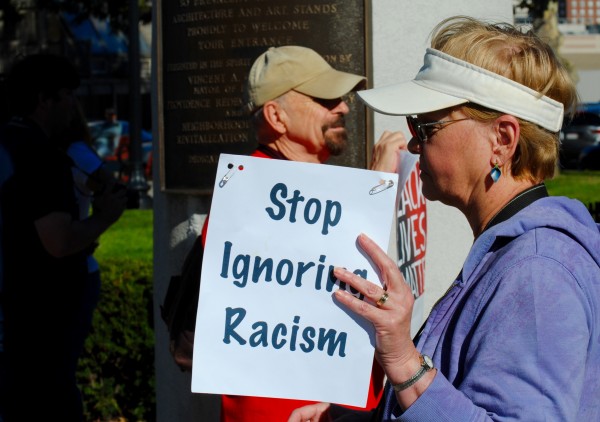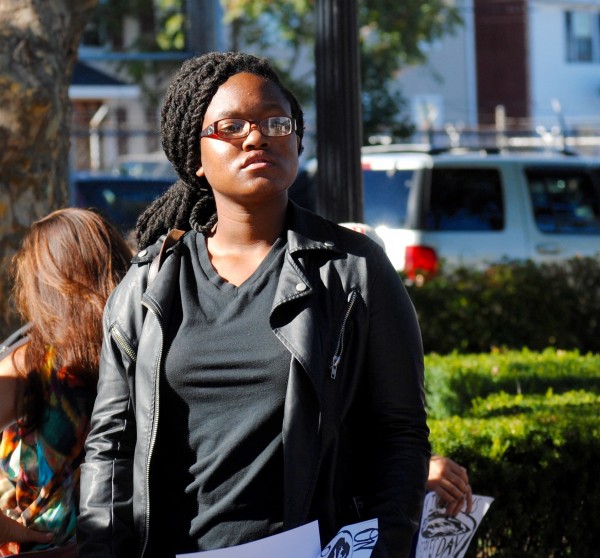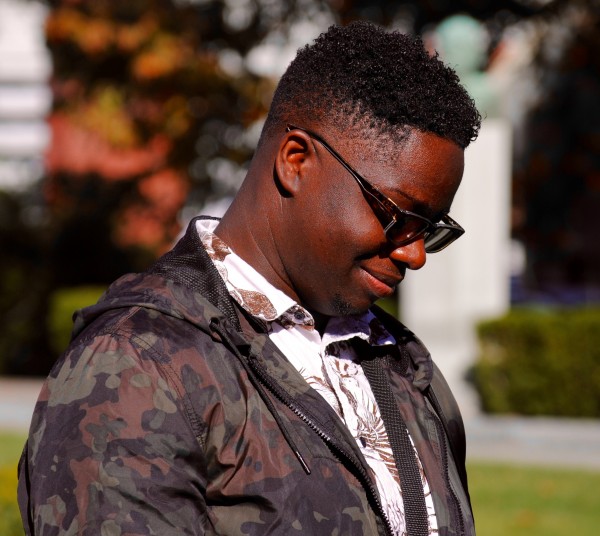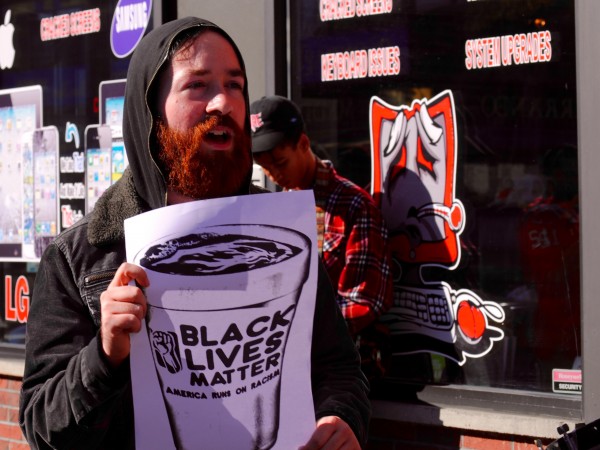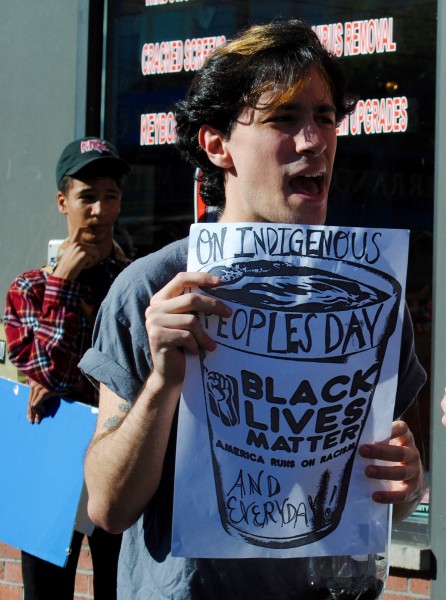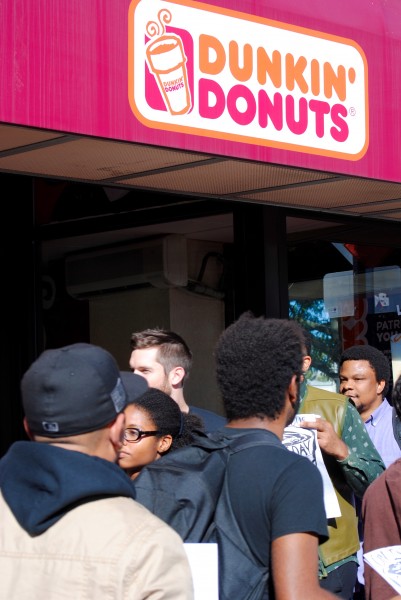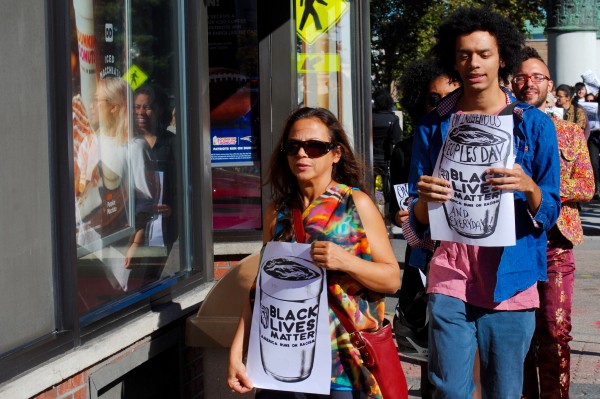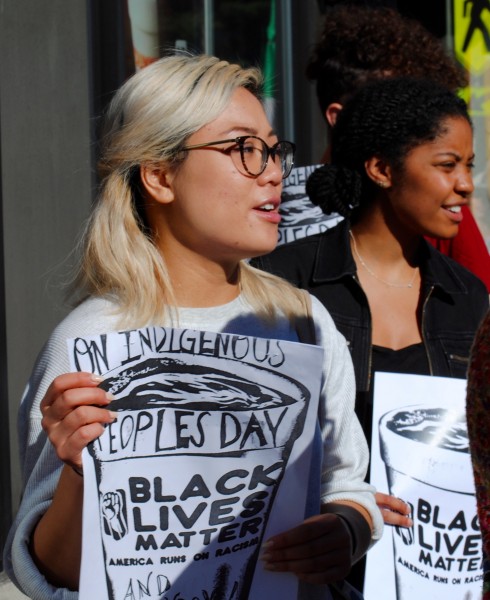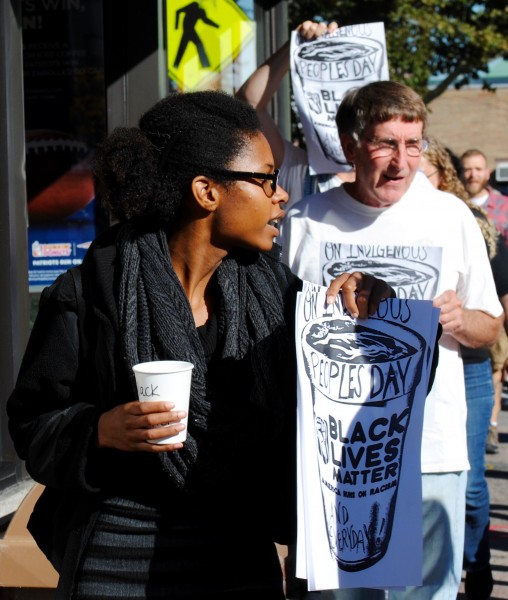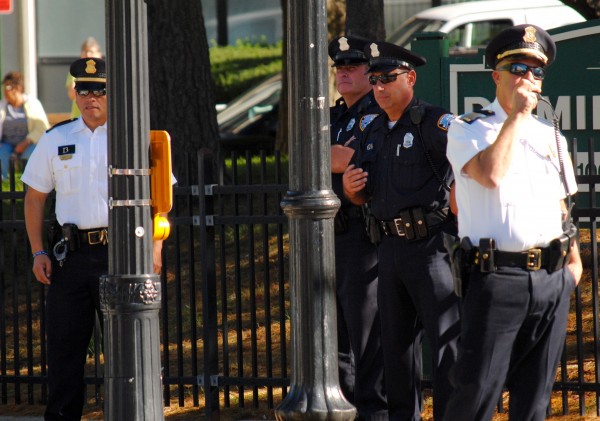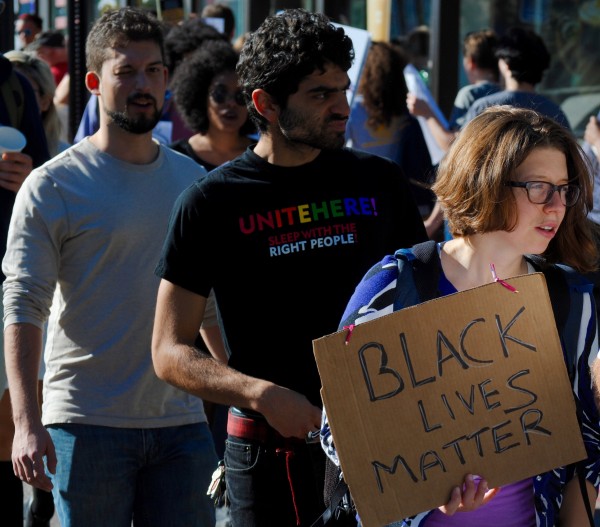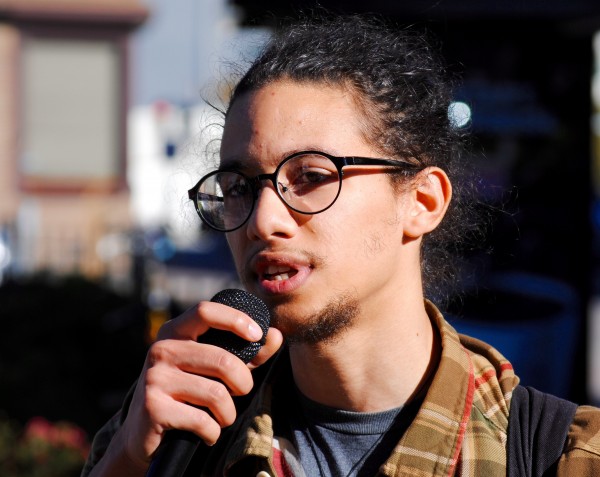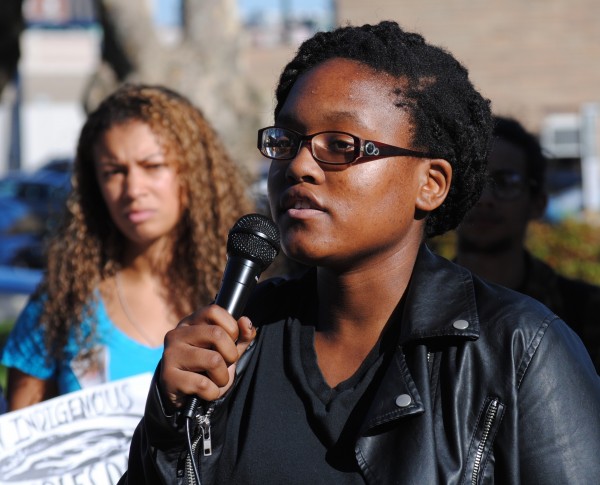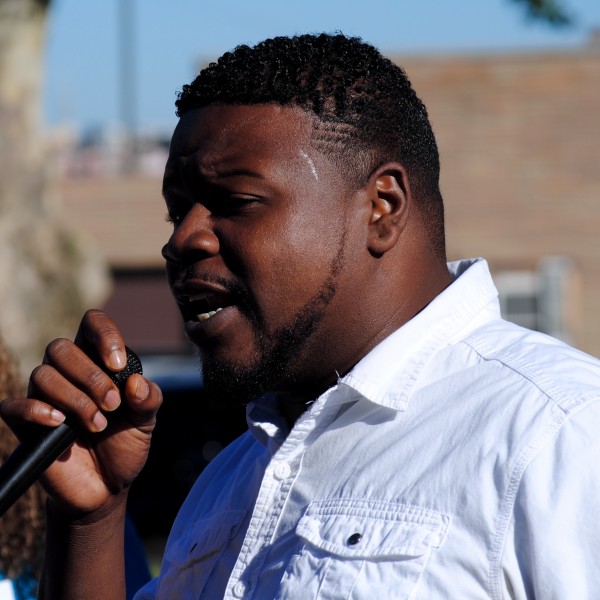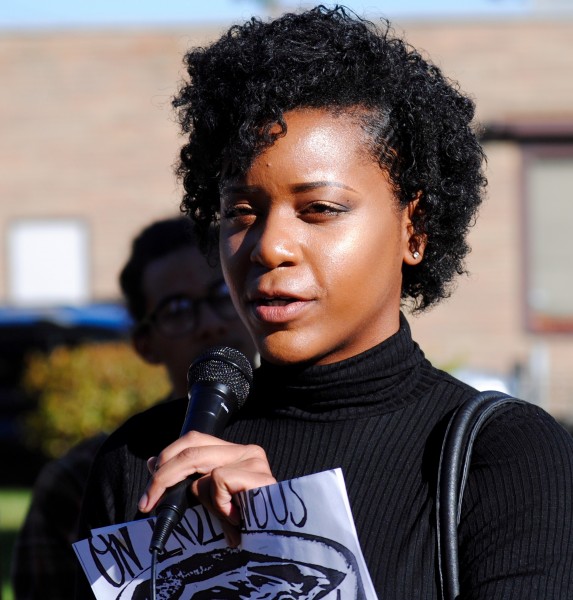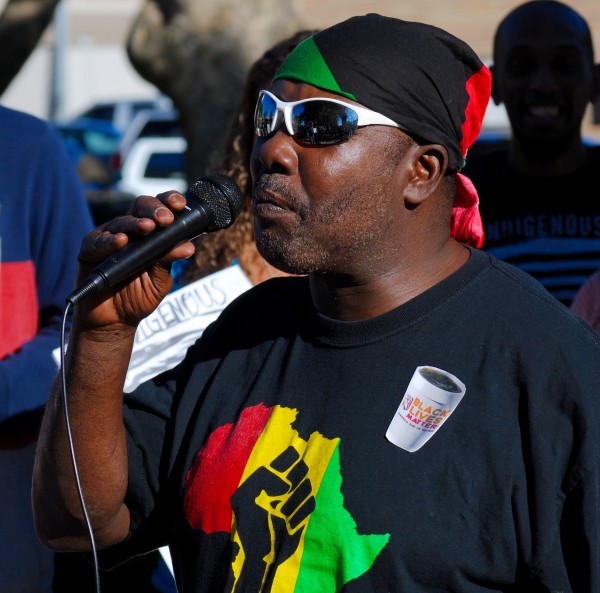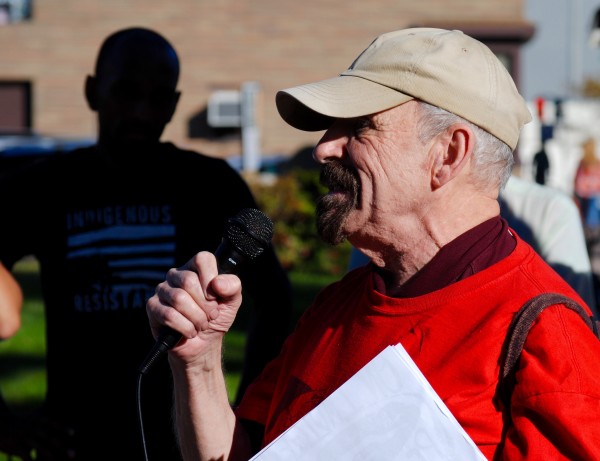Proving that stupid is a growing currency in our laughable excuse for a culture, there is now a boycott afoot that seeks to challenge the creators of the most successful film franchise in human history for their alleged provocation of “white genocide.”
As the newest STAR WARS film trailer launched Monday night, there also debuted a hashtag, #BoycottStarWarsVII, that protested the creeping authoritarian regime of a film being released by Disney. The Hollywood Reporter, always my personal favorite periodical for dealing with our tremendously racist society, ran this story to explain how high the intelligence of this silliness actually is:
“#BoycottStarWarsVII because it is anti-white propaganda promoting #whitegenocide,” read one tweet from an account calling itself “End Cultural Marxism.” (A subsequent tweet from the same account read “A friend in LA said #StarWarsVII is basically ‘Deray in Space,’ ” — a reference to civil rights activist DeRay Mckesson. “Jewish activist JJ Abrams is an anti-white nut.”)
Another Twitter account, calling itself “Captain Confederacy,” similarly griped that “SJWs [Social Justice Warriors] complain about White artists ‘misappropriating’ culture created by blacks but then celebrate a non-White Star Wars.” Yet another complaint read that the movie should be boycotted “because it’s nothing more than a social justice propaganda piece that alienates it’s core audience of young white males.”
Disney, who is releasing the new STAR WARS film following their purchase of the entirety of the LucasFilm Ltd. corpus from George Lucas some years ago, is now a haven of Marxism, cultural or otherwise? The irony is only matched by the stupidity in this statement.
Disney as a corporation headquartered in Florida is a major donor of the Republican Party, dependent for decades on a series of tax and labor law exemptions that make the operations and maintenance of their various Orlando theme parks tenable. The people who work at Disney are non-union laborers who put up with low pay and even lower benefits. There is a dog-eat-dog culture in the employee pool caused by the economic neoliberalism made manifest on Main Street, USA. Many of the performers who wear the character costumes are in fact low-paid student interns who use their jaunt at Disney World as a resume booster to ascend the ladder in the performing arts, striving one day to work in unionized theater companies. This ethic dates back to the days when Uncle Walt was busting animator labor union efforts and denouncing the union drive leaders as commies before the House Committee on Un-American Activities. The fact that the studio is responsible for a string of unapologetically racist cartoons during the Second World War that demonized Latinos, Asians, and Africans is icing on the cake. There are humans that actually think the folks who brought us SONG OF THE SOUTH, featuring a literal Tar Baby, are now all of the sudden Leninists?

Perhaps the best critique of Disney comes from Providence native Dr. Henry Giroux, the radical scholar and educator who was denied tenure in 1983 by Boston University President John Silber due to trumped-up charges and a blatant case of anti-communism. He has been engaged for the entirety of his career in a left-wing response to the neoliberal war on critical thought and education. To that degree, he has written valuable scholarship describing Disney as what Louis Althusser called an ‘ideological state apparatus’, a structure like the Church, major media conglomerates, schools, and other cultural landmarks that creates docility and obedience in the population. Here he is in a clip from the film MICKEY MOUSE MONOPOLY: DISNEY, CHILDHOOD & CORPORATE POWER, produced by Media Education Foundation.
He says later in the film:
You can’t get away, anywhere you go, from the products that are being sold and they all overlap so that if Disney produces a bad film, it doesn’t have to worry because, you see it, owns a television station, or it owns a television network in which you can run that film over and over again to massive audiences. Or, it can use its retailers to in fact transform it into a video and sell it in its video store, or it can market it abroad, or create a whole new toy line. Or, if we missed the point, it can begin to advertise it over and over in its newspapers, in its magazines, in it journals, so that eventually it will seem as if that really is such a wonderful product. How can it be in so many places? How could you miss it? I mean, so it seems to me it has the power to place that product, it has the power to turn every element of communication and information in to an advertisement.
That is what makes this accusation of STAR WARS being a radical film due to its multicultural casting so dangerous. By creating the notion that our standard of the Left must include a multi-national corporate entity with a profound and vile record of racism, sexism, misogyny, homophobia, and anti-intellectualism masked as anti-communism, we as consumer-citizens (and there is no real difference at this point) allow the cultural dialogue and intellectual discourse slide that much farther to the right. By doing so, we surrender that much more of our freedom and ability to think critically. And it is abundantly clear, when one looks at the curriculums of neoliberal charter schools and even public schools ensnared in the neoliberal net of Common Core, Race to the Top, and other bi-partisan educational ‘reform’ schemes, that the capacity to think critically is directly targeted by neoliberalism as the mode of governance that both the Democrats and Republicans abide by.
Of course, the typical liberal/progressive response is either to point out the obvious, that the STAR WARS series featured black actors like James Earl Jones, Billy Dee Williams, and Samuel L. Jackson, or to celebrate this shift in the casting dynamics of the Disney corporation. But that is a failure from the outset because it lacks in its critique a discussion of class and how Disney has, along with other major corporations like Wal-Mart, solidified the hegemony of neoliberal orthodoxy in the American economic order. The problem with simplistic identity politics that only emphasizing things that are skin-deep delegitimizes critiques of a Condoleeza Rice or Ben Carson for their obvious gaps regarding economic issues. That is not to say identity issues are invalid, far from it, but one must create a multi-dimensional spectrum that reflects class elements just as equally so to be truly incisive.
Perhaps one of the better critics of neoliberalism in the past few decades was the late Hugo Chavez. He took power in Venezuela and directly challenged Sith-like anti-Latino racism of the Monroe Doctrine with his policies. But he included in his defense of his people the vital issue of class. As a result, the world has seen a ripple effect across South America. Bolivia, Brazil, Ecuador, and Paraguay all elected populist leaders that have challenged the Disney-fication of culture, including economic culture, and mounted a powerful counter to bland identity politics that lack the class element. These are the real Jedi Knights. They have the bravery to take on the Dark Side of neoliberalism, which breeds by design a Palpatine-like imperial presidency. The fact they all come from humble beginnings proves you do not need midichlorians, just a level of insight into the way money, power, and empire work.

Even though one can call my own politics Leftist, this is not a Left wing position. The recognition of and speaking against neoliberalism is harkening back not to the Communist Party but the Democratic Party of Franklin Roosevelt and Lyndon Johnson. Back then, the major Keynesian economic engine that pulled the country out of the Great Depression and created the boom of the 1950’s and 1960’s was our war economy, first developed to fight the Japanese and Germans and then turned against our wartime allies, the Soviet Union, in a Cold War that lasted until Nixon’s detente policies caused what was known as ‘stag-flation’.
As we stand on the precipice of ecological catastrophe and ever-expanding Middle Eastern wars caused in no small part by our dependence on fossil fuels, the Rhode Island Democratic Party now has at hand the ability to create a Green New Deal that would put thousands more people to work than a Spectra natural gas plant will, unionized jobs installing solar panels, wind turbines, hydroelectric, and geothermal electrical generation mechanisms that would create long-lasting, good-paying union jobs. As irony would have it, George Lucas has also been open about how the Cold War and Richard Nixon inspired his original STAR WARS stories. In a 2005 interview, he explained that REVENGE OF THE SITH’s purge of the Jedi was actually a fantastic version of Watergate and the infamous Saturday Night Massacre.
Do our Democrats dare enact the measures similar to our Latino Jedis and practice some actual democracy? Or will they stand by while our tottering Old Republic transitions into a real Empire? If it be the latter, we might do well to recall the words of T.S. Eliot, ‘This is the way the world ends/Not with a bang but a whimper‘.



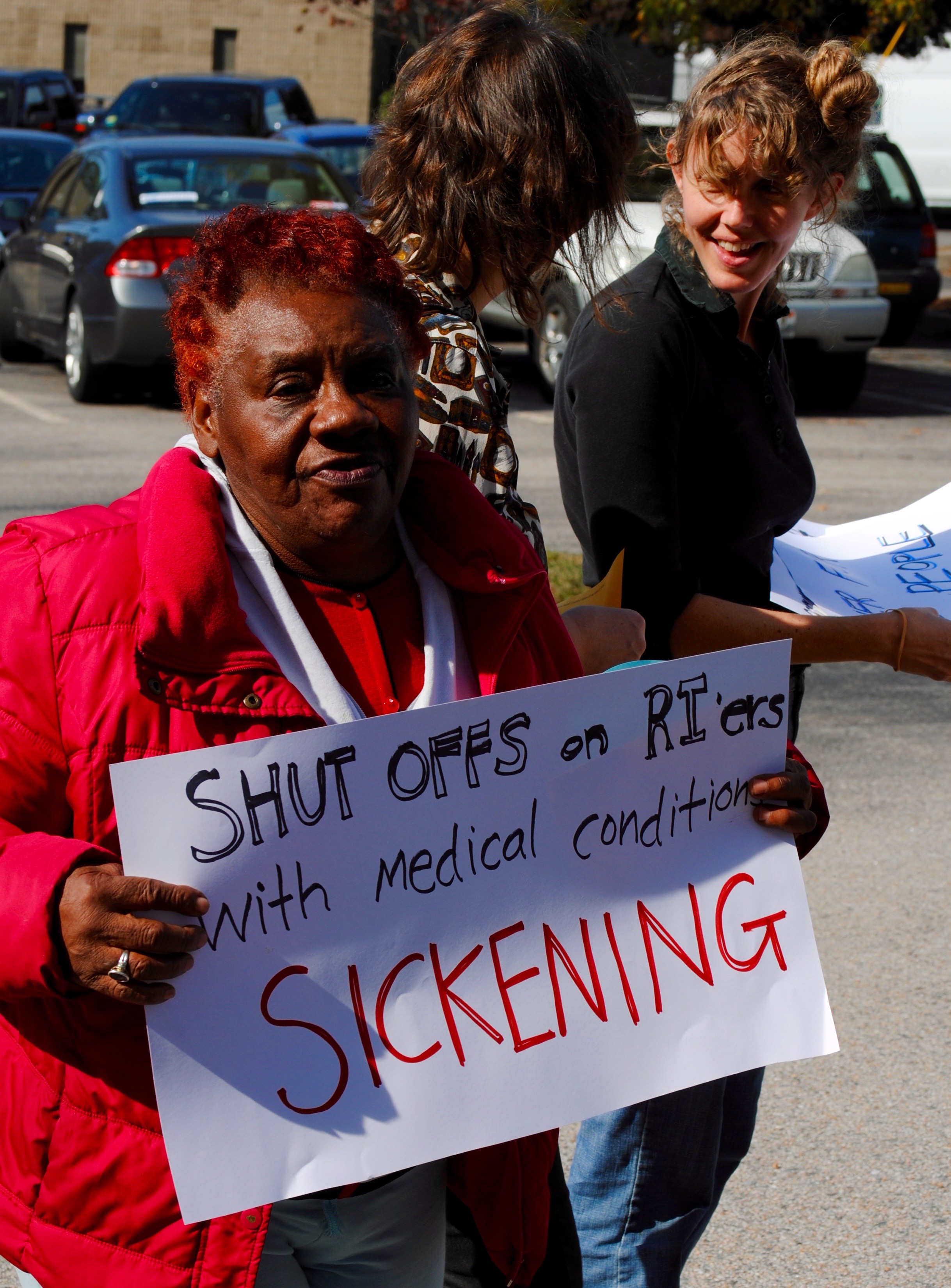
 More than 30 people entered the RI Public Utilities Commission (PUC) yesterday to demand an end to the epidemic of unfair utility shut-offs. Many in attendance have been victims of these shut-offs, even though they complied with the law and produced letters from their doctors indicating that their health would be seriously compromised by shut-offs. The protest was lead by the
More than 30 people entered the RI Public Utilities Commission (PUC) yesterday to demand an end to the epidemic of unfair utility shut-offs. Many in attendance have been victims of these shut-offs, even though they complied with the law and produced letters from their doctors indicating that their health would be seriously compromised by shut-offs. The protest was lead by the 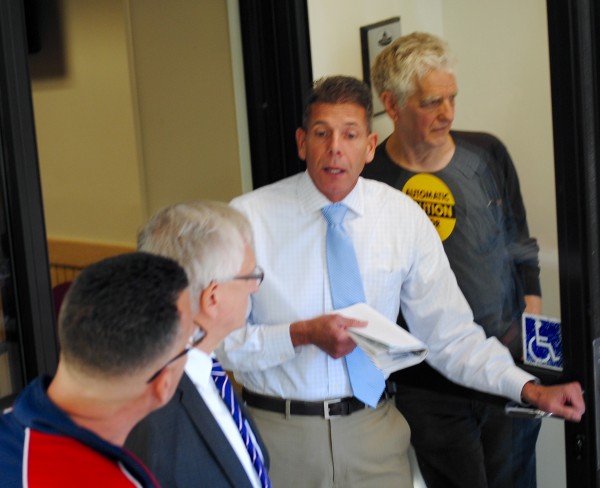 According to a George Wiley Center press release, “Every year tens of thousands of households in Rhode Island experience the stress of utility service termination due to unaffordable bills. It is shocking that in many of these homes live people struggling with medical conditions. This injustice is due to a loophole that allows the state’s Division of Public Utilities to grant National Grid permission to shut off households, even when their medical status is on file.”
According to a George Wiley Center press release, “Every year tens of thousands of households in Rhode Island experience the stress of utility service termination due to unaffordable bills. It is shocking that in many of these homes live people struggling with medical conditions. This injustice is due to a loophole that allows the state’s Division of Public Utilities to grant National Grid permission to shut off households, even when their medical status is on file.”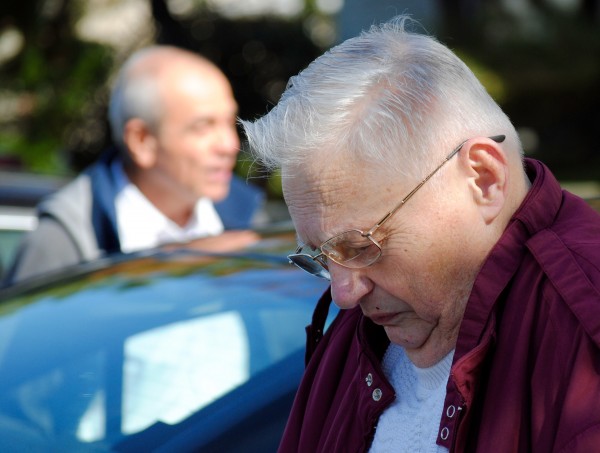
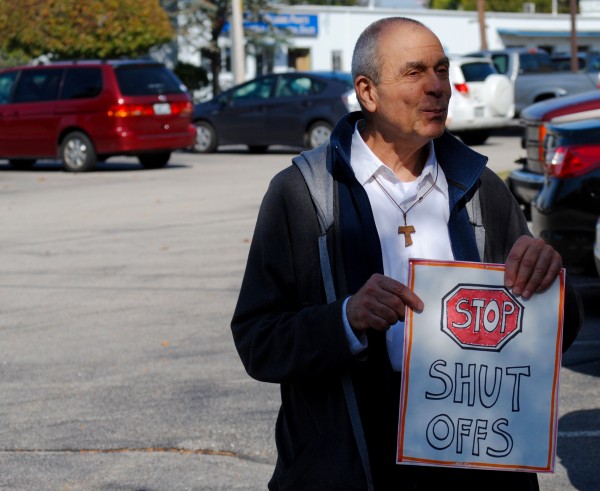
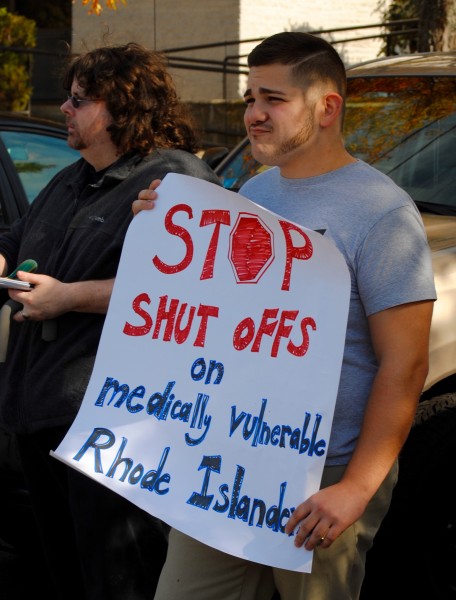
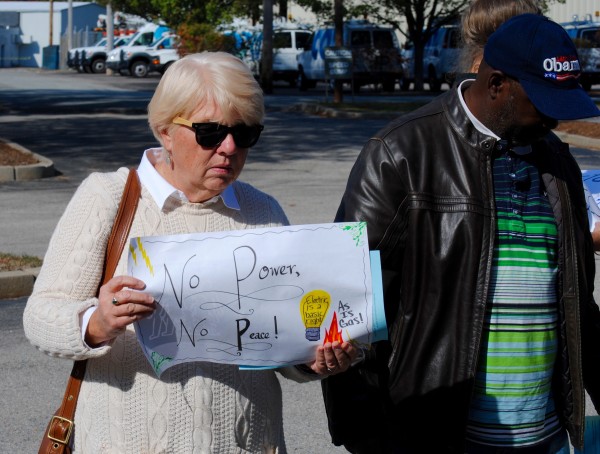
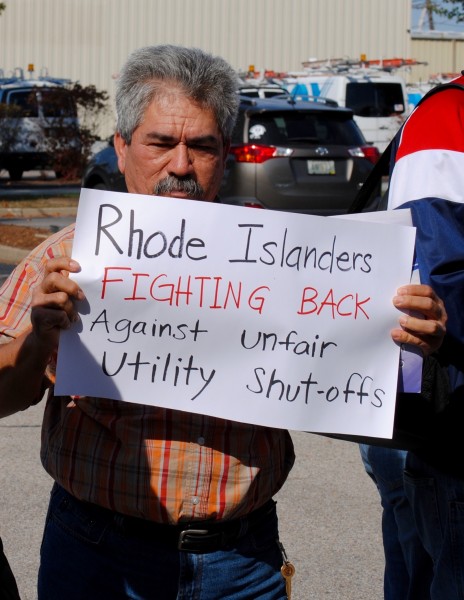

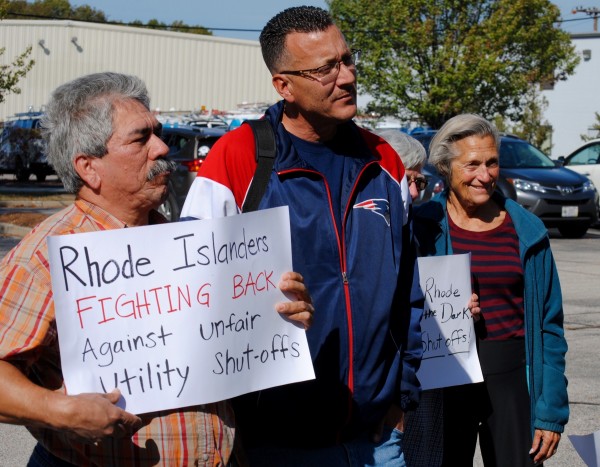


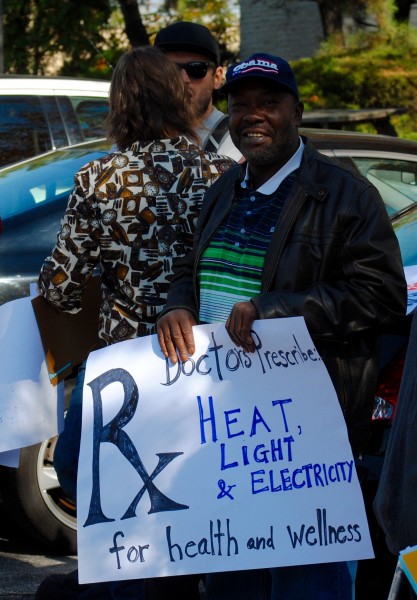
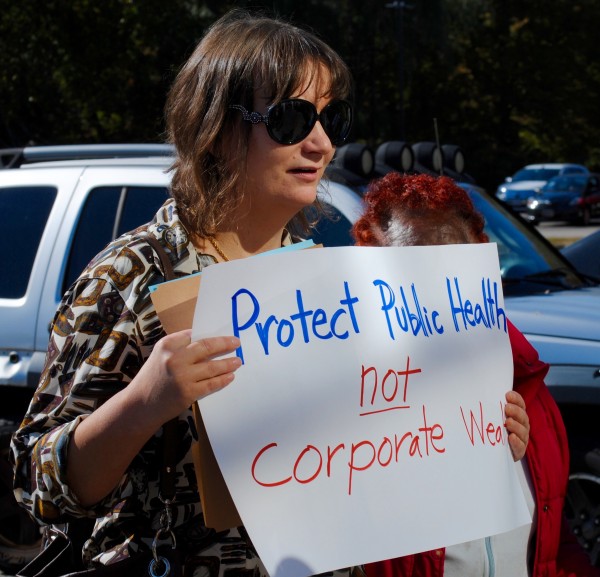
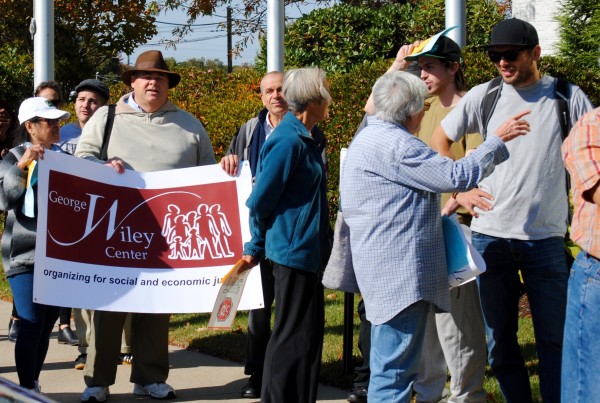
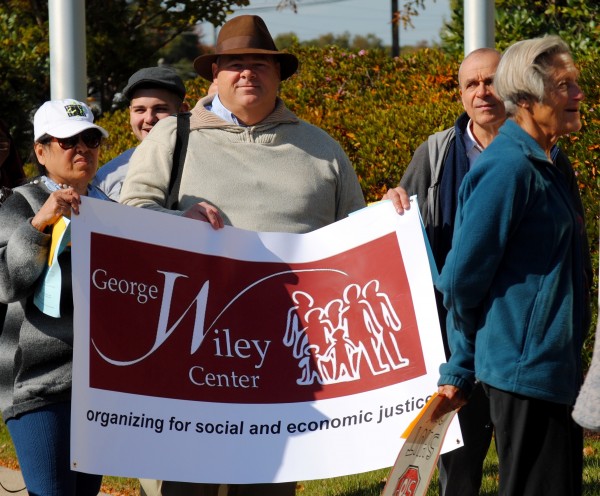
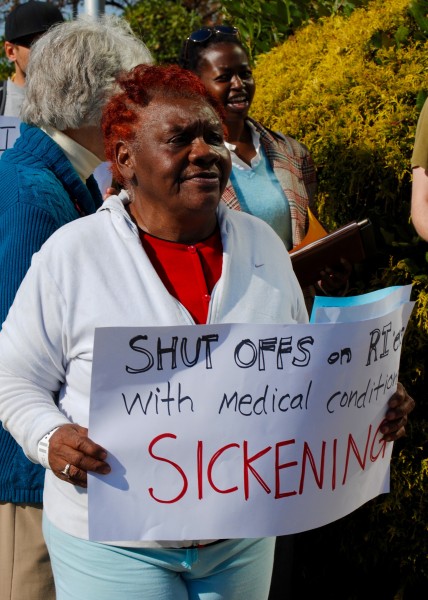
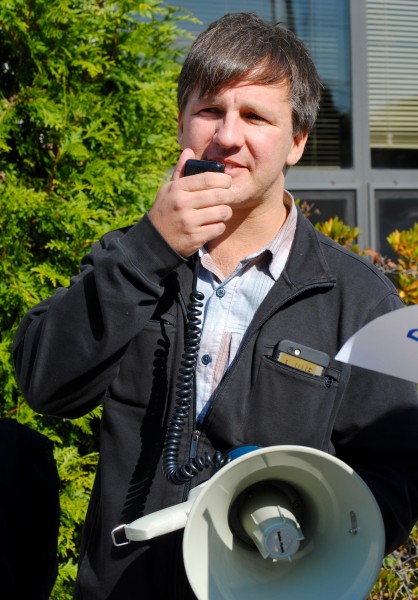
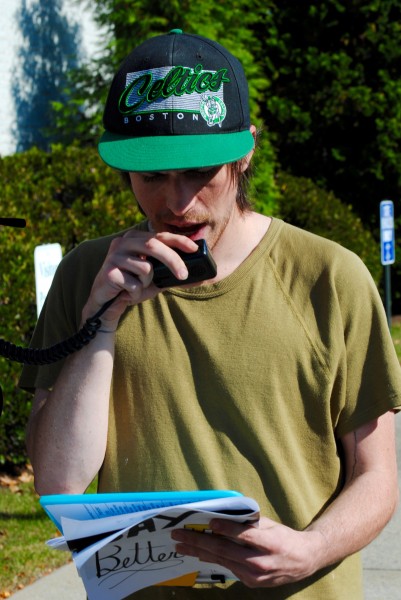
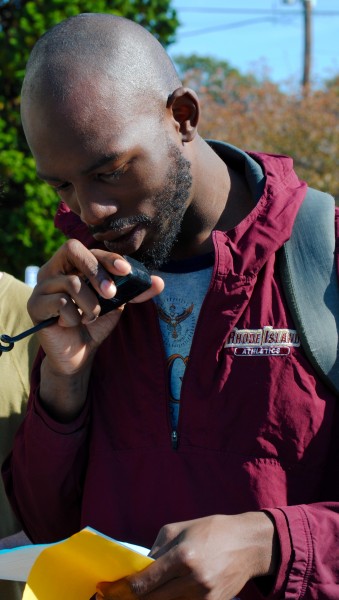
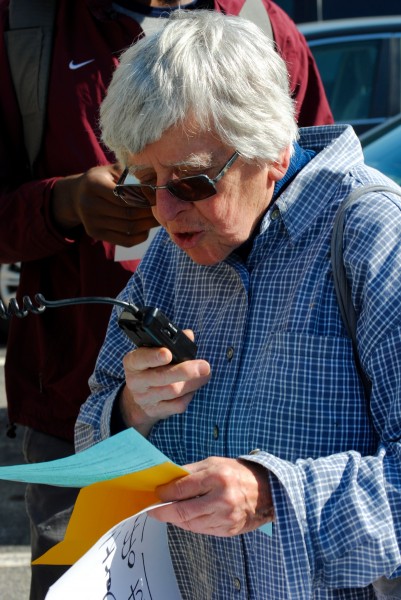
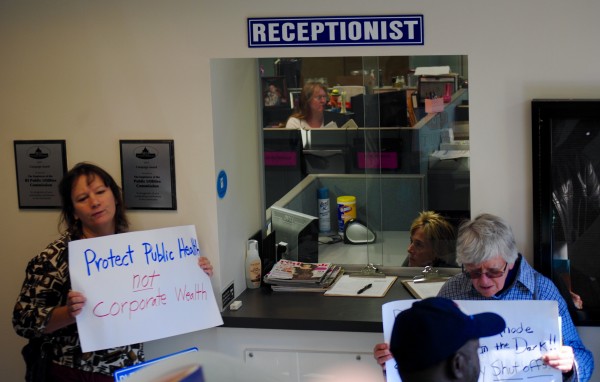
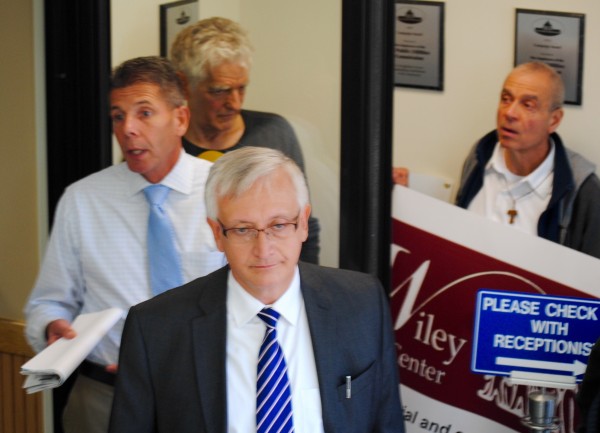
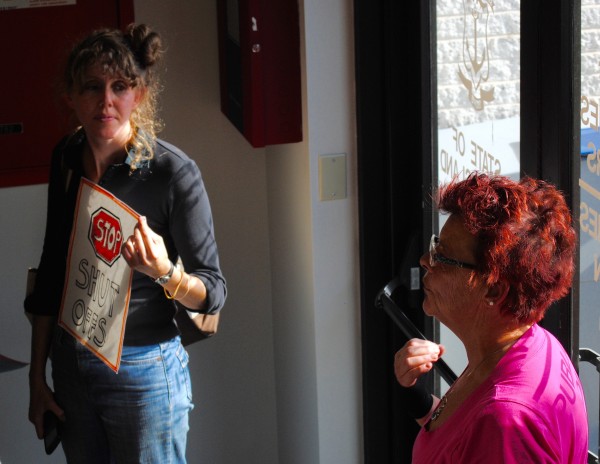
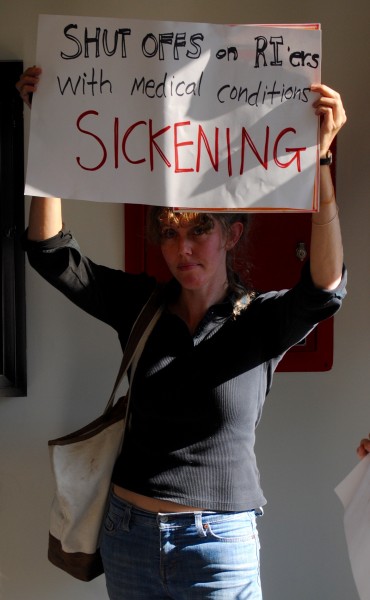
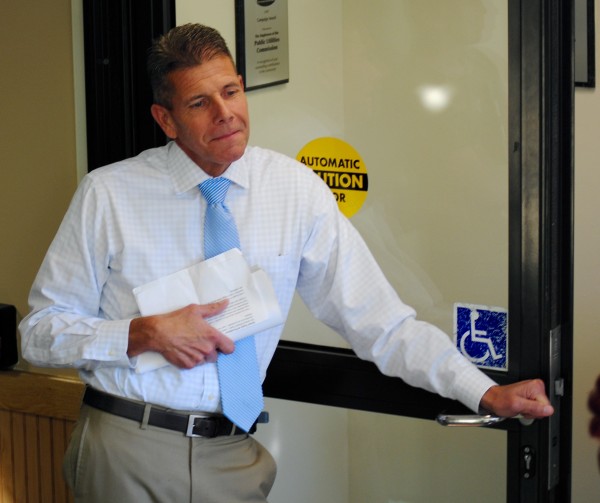
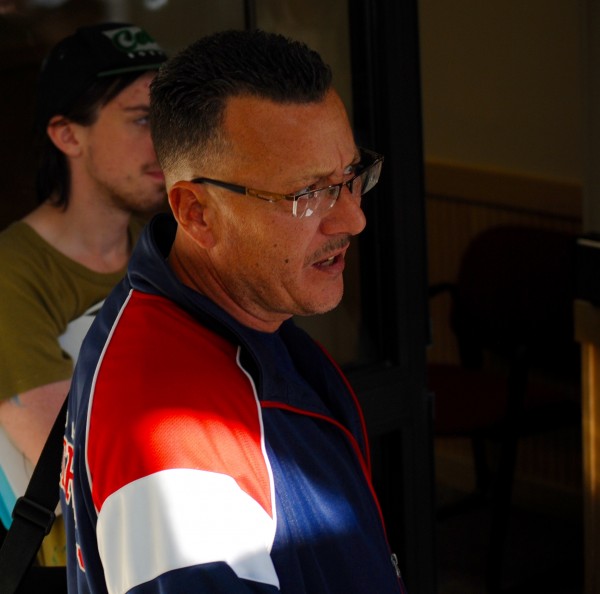

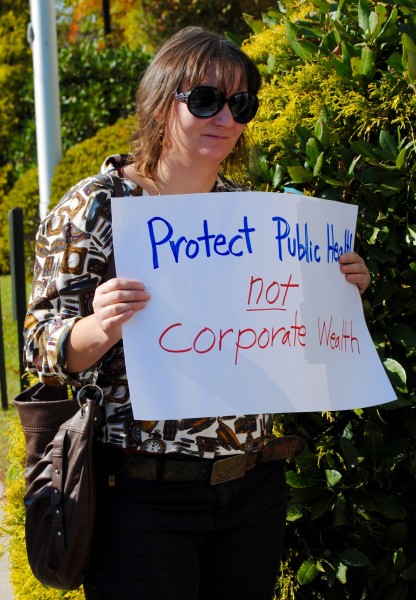
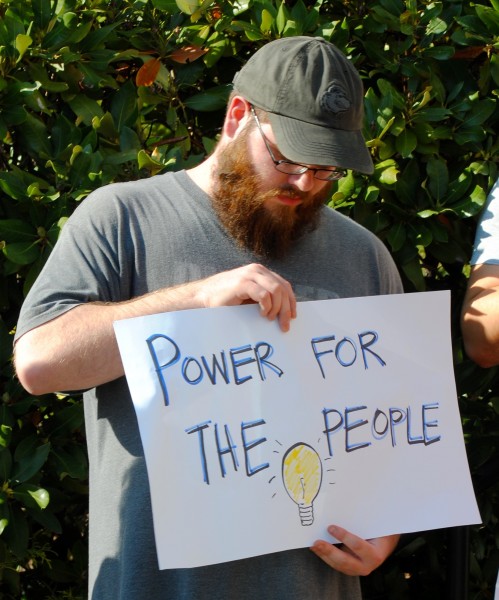


 A strong majority of workers at the Providence Renaissance filed for a union election yesterday. The workers expect to win the election and proceed to negotiate a fair contract with the hotel owner The Procaccianti Group. The workers believe unionization will increase racial and gender equity in Providence.
A strong majority of workers at the Providence Renaissance filed for a union election yesterday. The workers expect to win the election and proceed to negotiate a fair contract with the hotel owner The Procaccianti Group. The workers believe unionization will increase racial and gender equity in Providence.


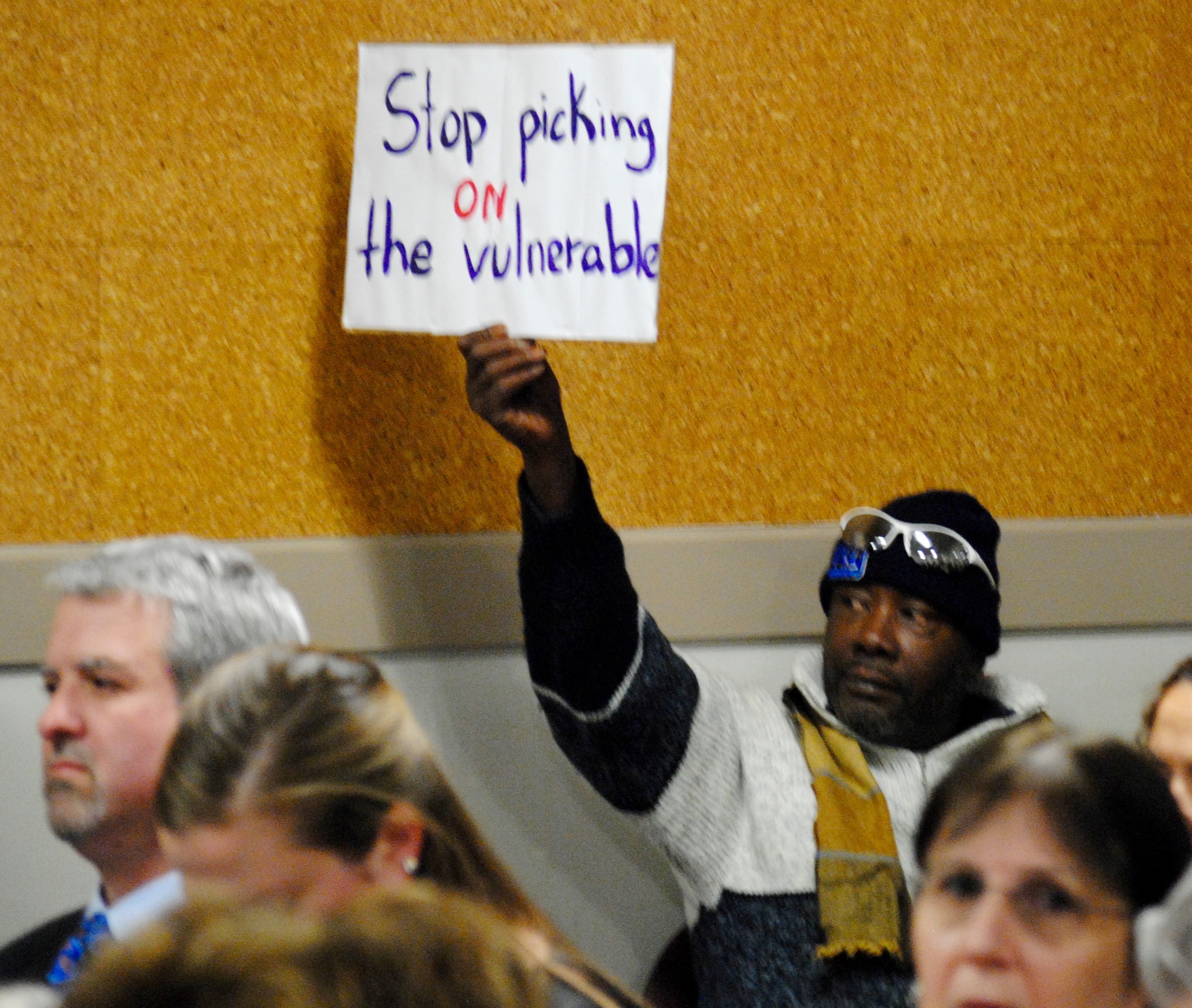
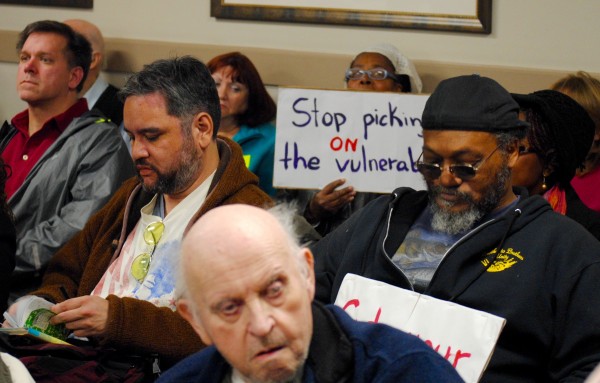 About 100 people turned out to oppose the RIPTA‘s planned fare hikes on the elderly and disabled at yesterday’s board meeting, packing the small conference room and overflowing into the halls. This almost doubles the opposition the plan faced a month ago at
About 100 people turned out to oppose the RIPTA‘s planned fare hikes on the elderly and disabled at yesterday’s board meeting, packing the small conference room and overflowing into the halls. This almost doubles the opposition the plan faced a month ago at 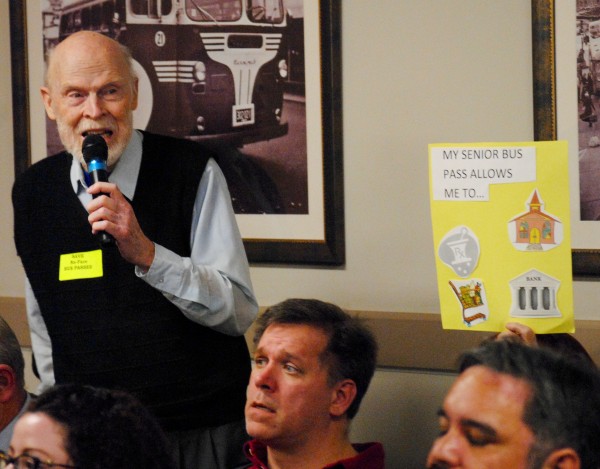
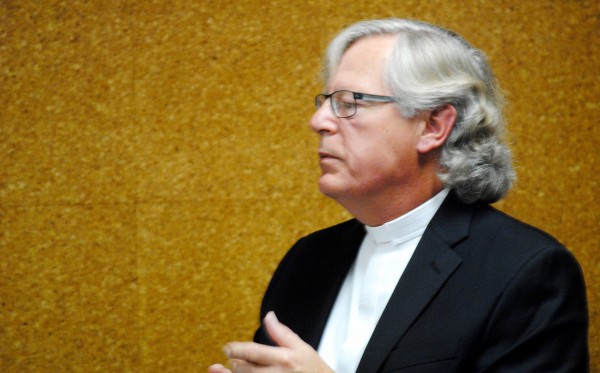
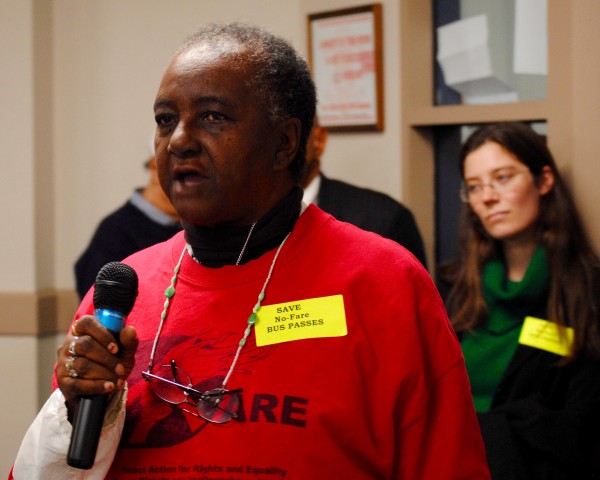
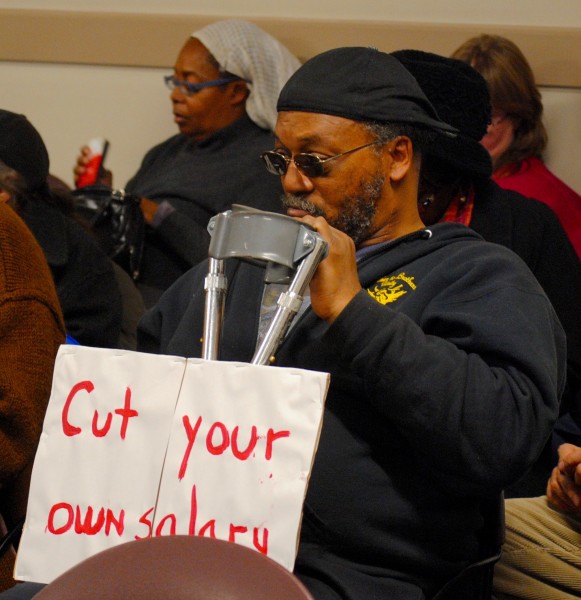

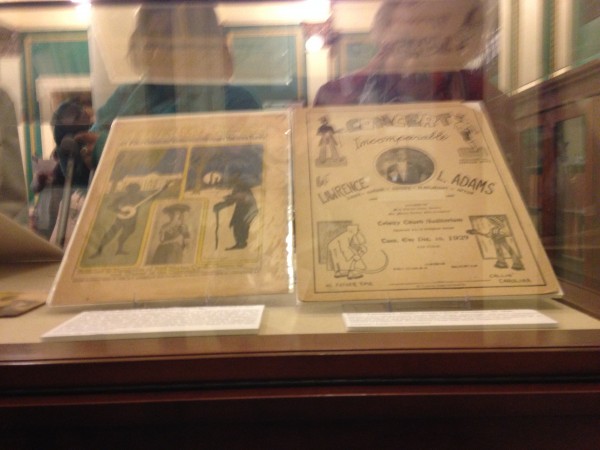
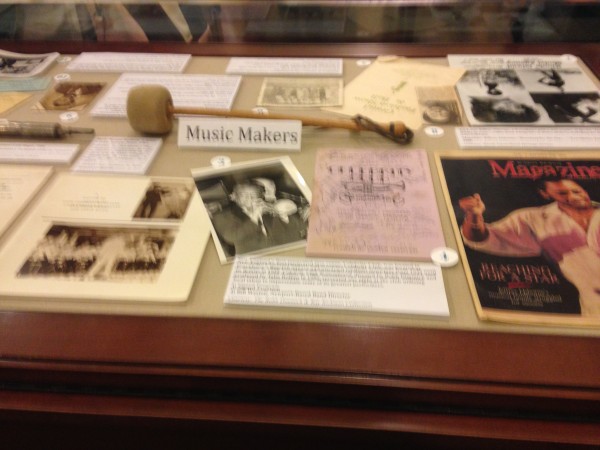

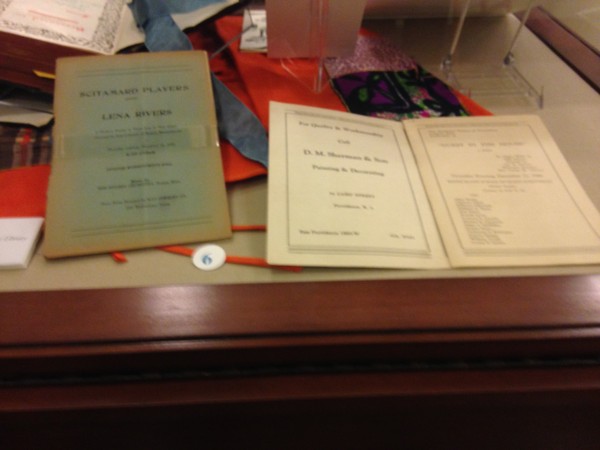
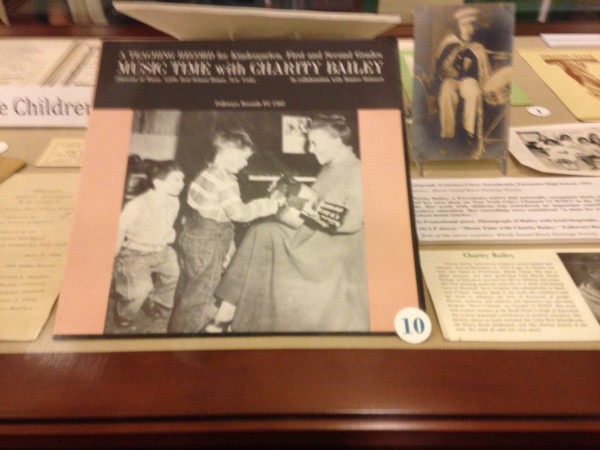
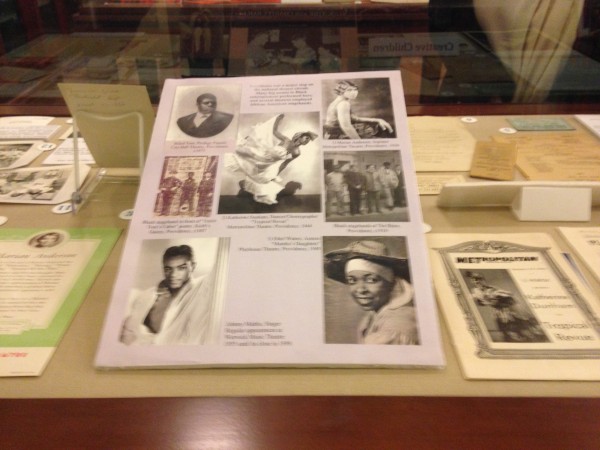
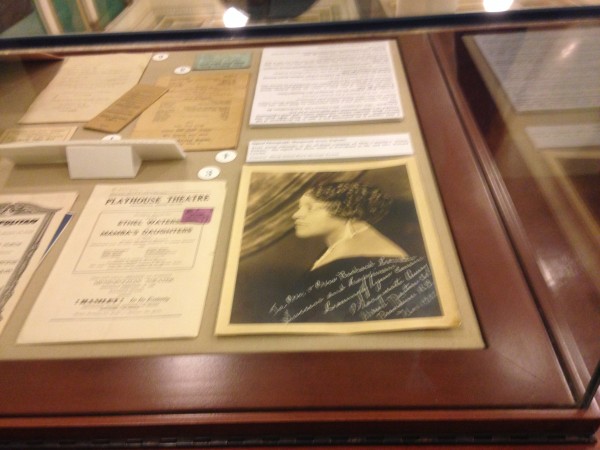
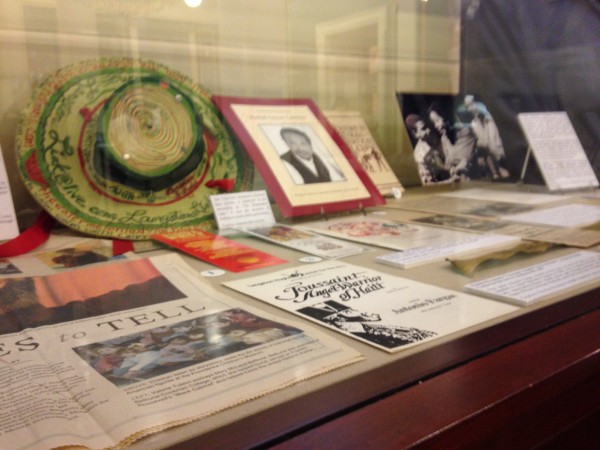
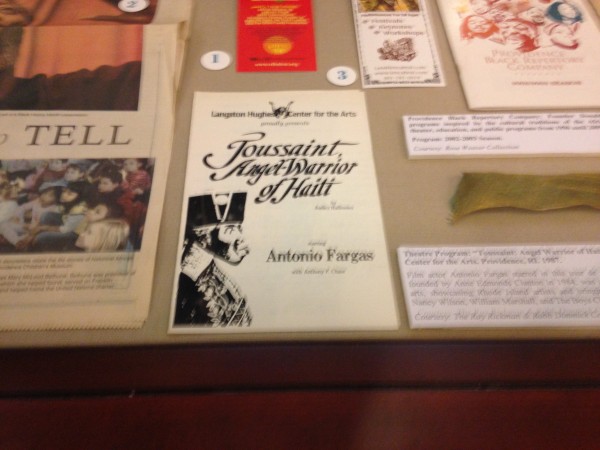
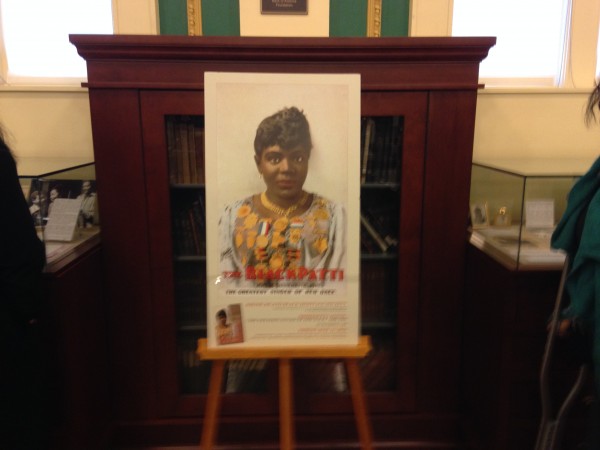
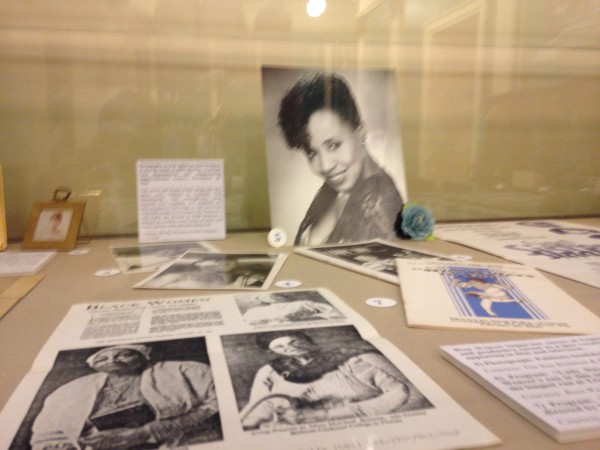

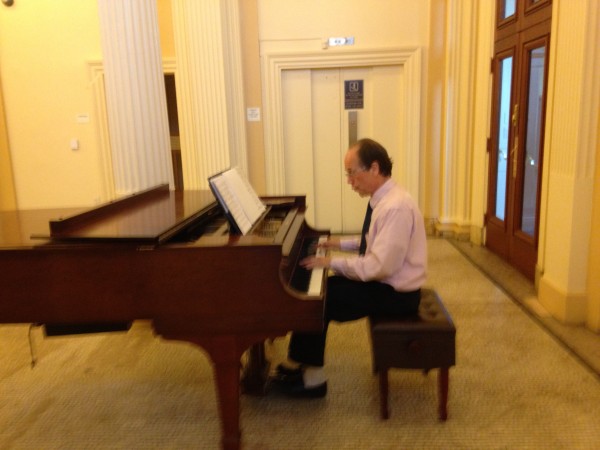


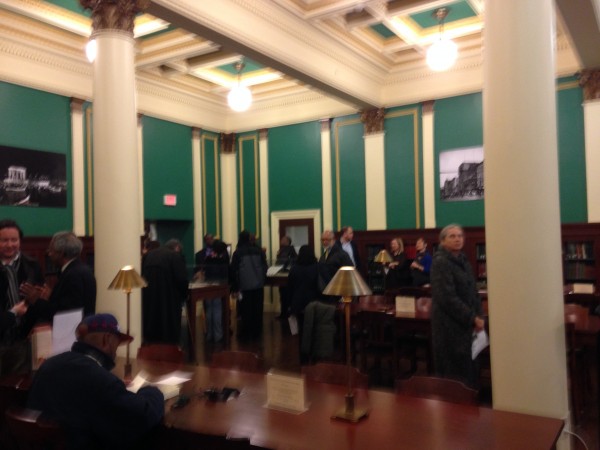
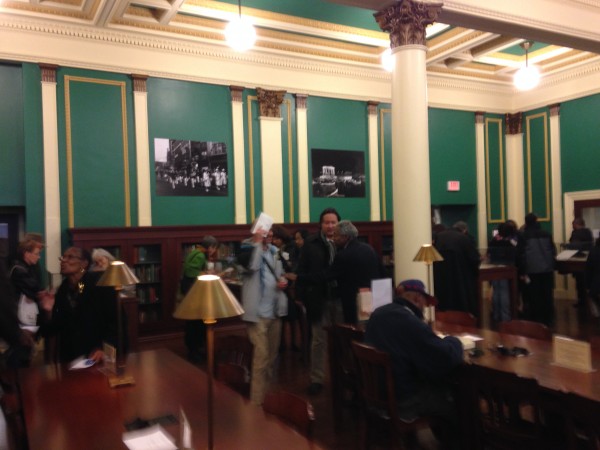


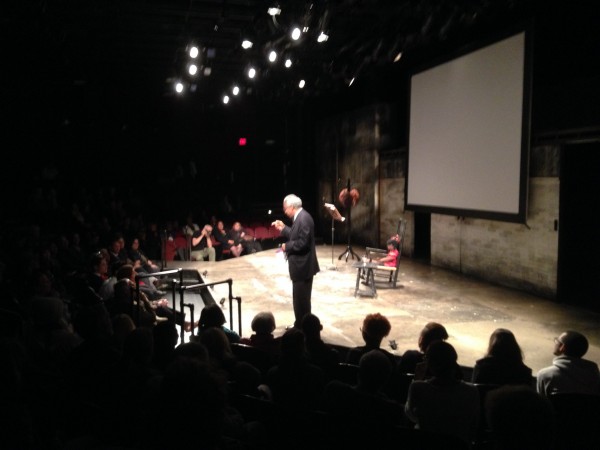
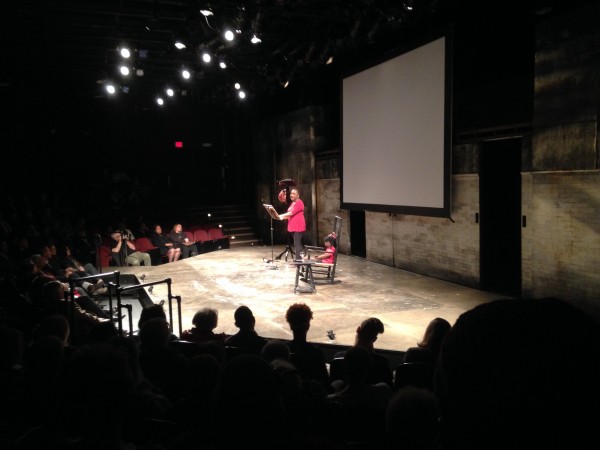
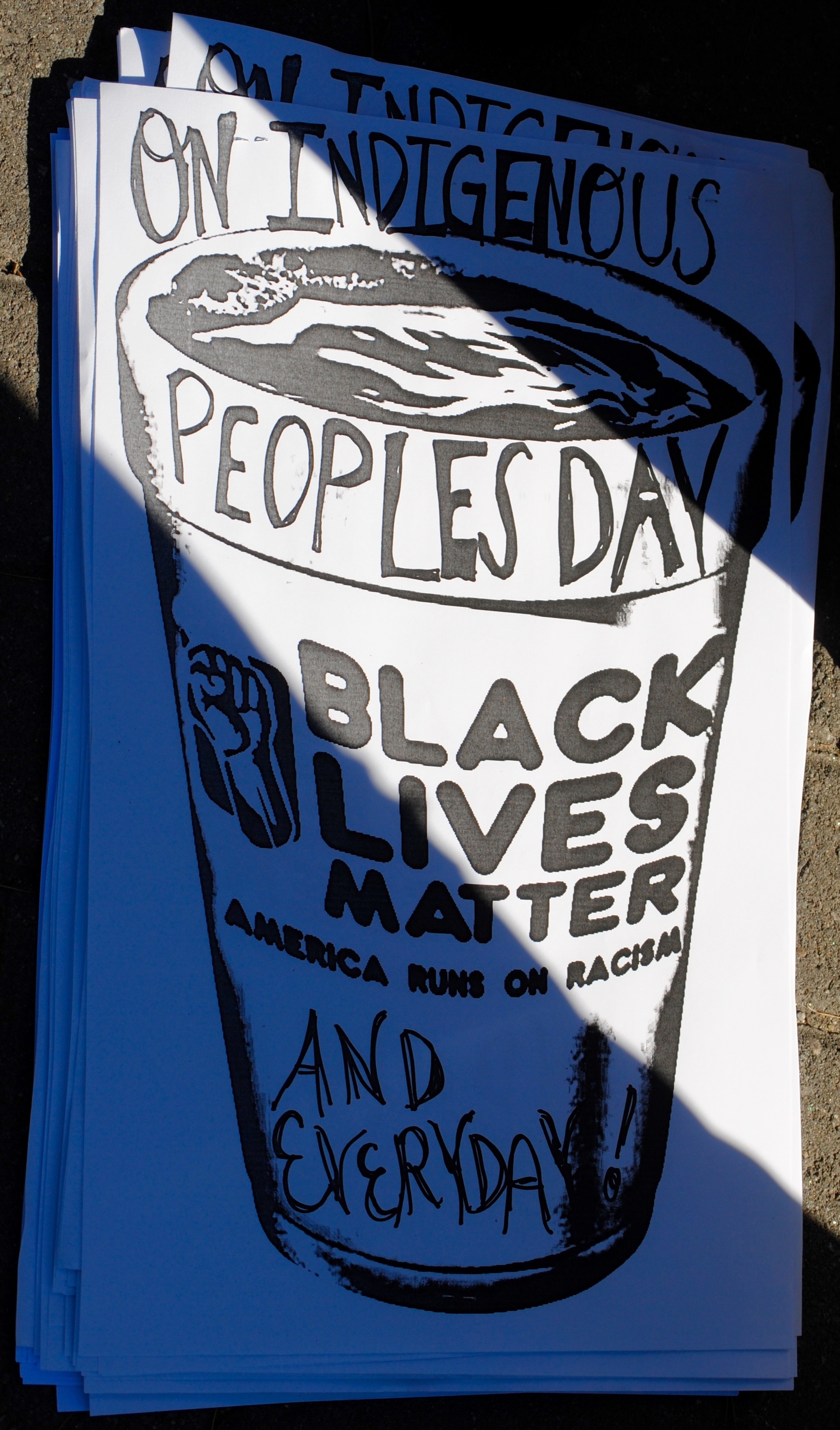
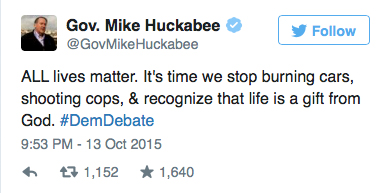 At the Democratic National Debate on Tuesday a question was asked, “Do black lives matter, or do all lives matter?”
At the Democratic National Debate on Tuesday a question was asked, “Do black lives matter, or do all lives matter?”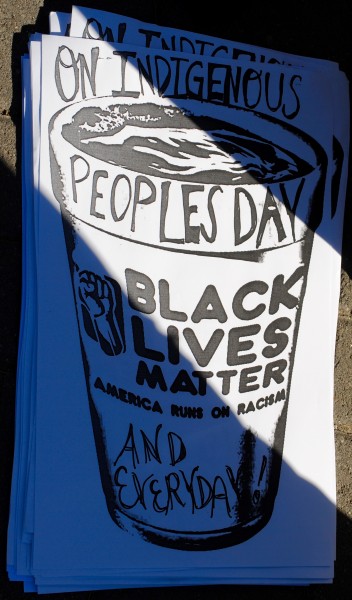 What about the people I represent? At every turn I make in life, people remind me that I represent the “dregs of society,” and I am wasting my time. But I have always seen my clients as people, maybe a little broken, but still people because I believe that #AllLivesMatter.
What about the people I represent? At every turn I make in life, people remind me that I represent the “dregs of society,” and I am wasting my time. But I have always seen my clients as people, maybe a little broken, but still people because I believe that #AllLivesMatter.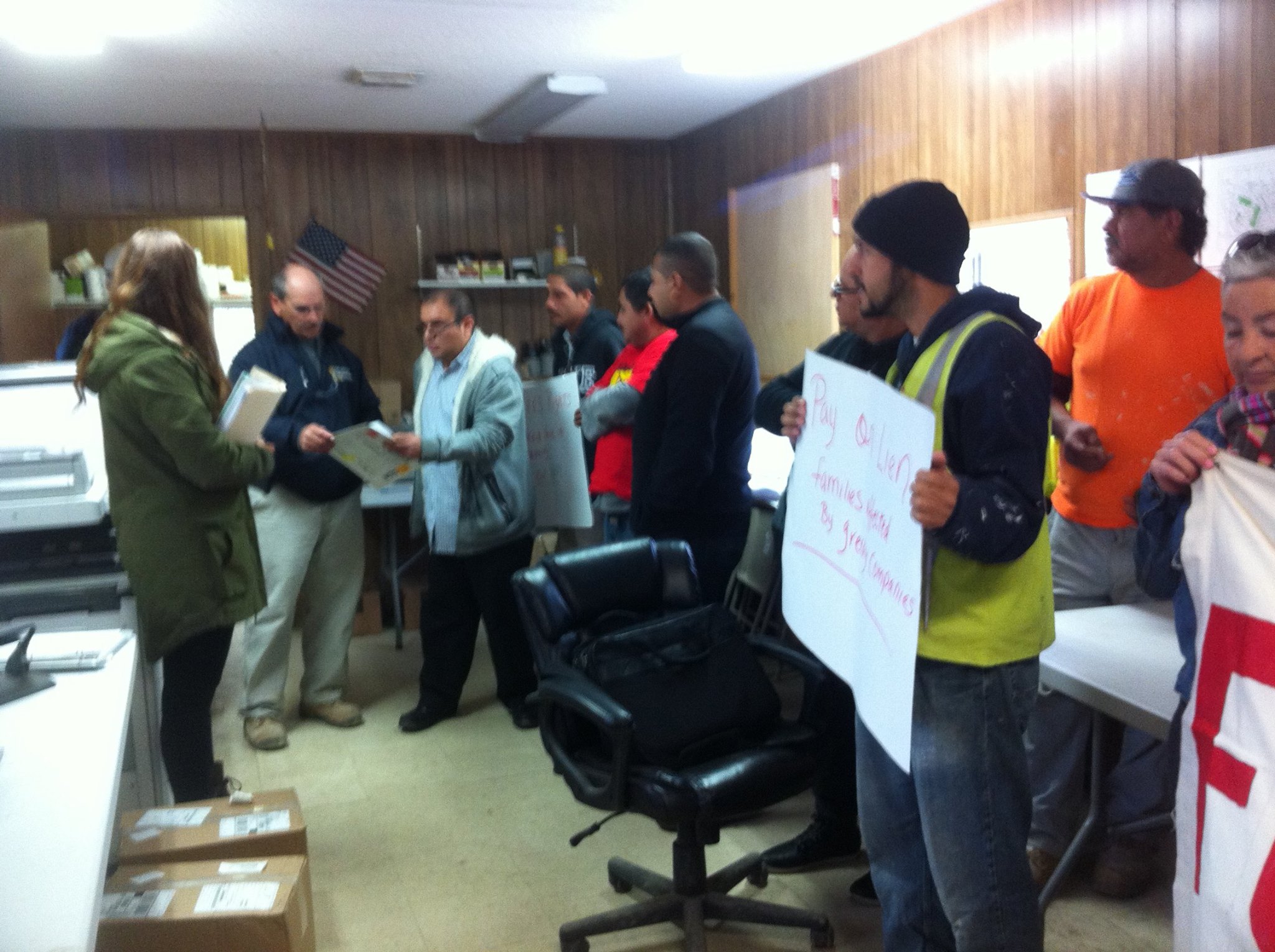

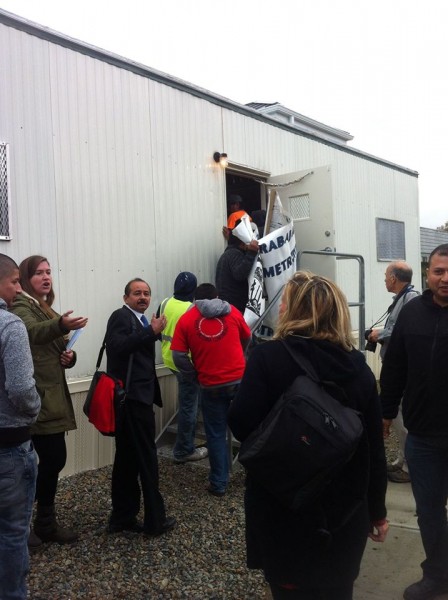


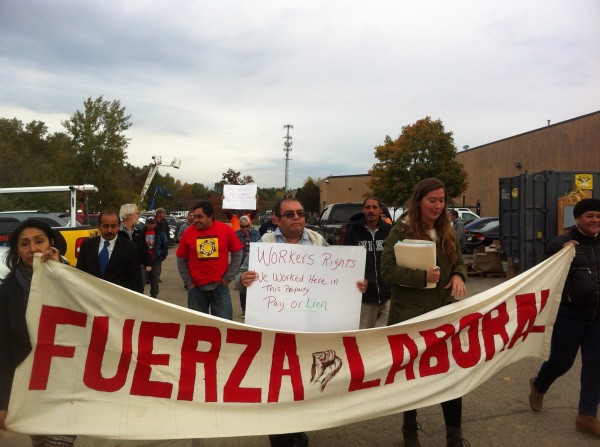


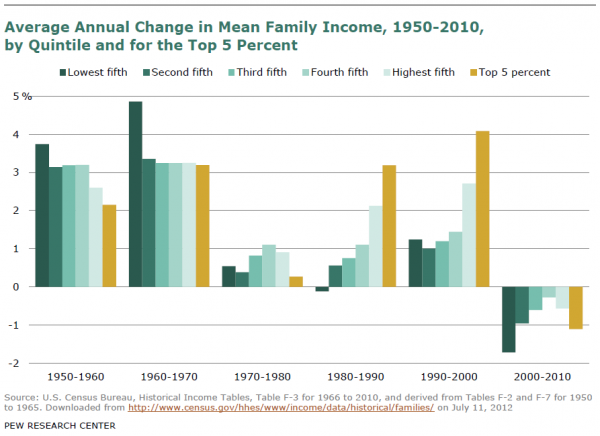
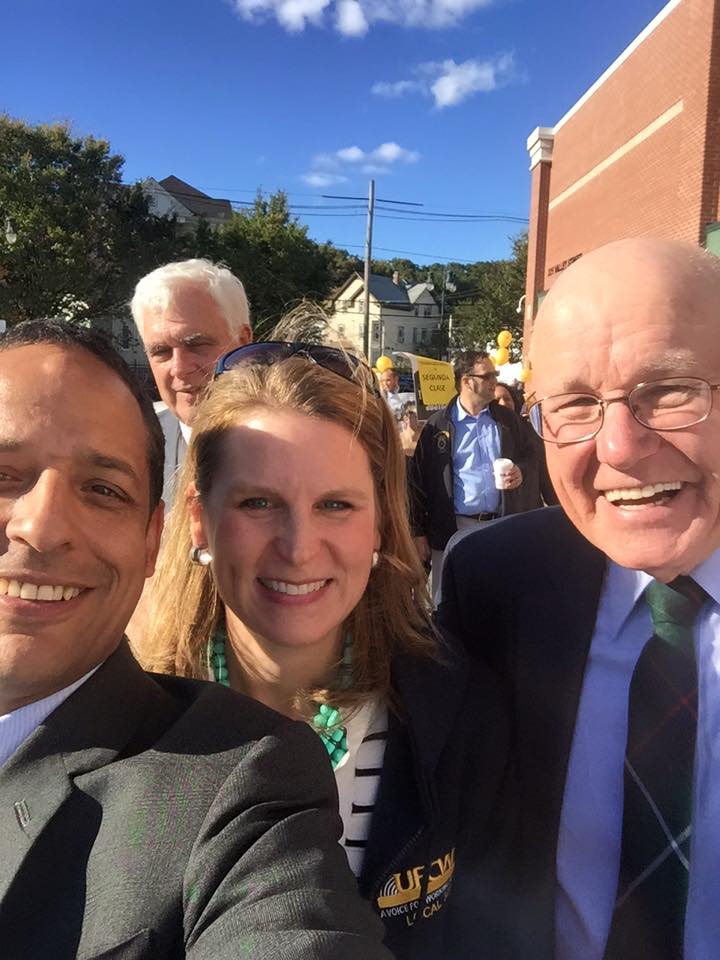
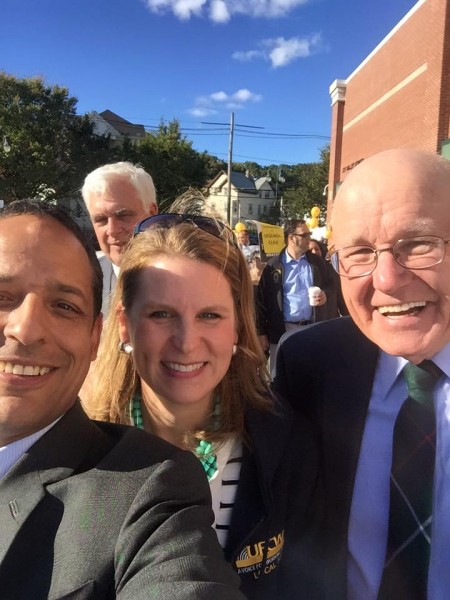
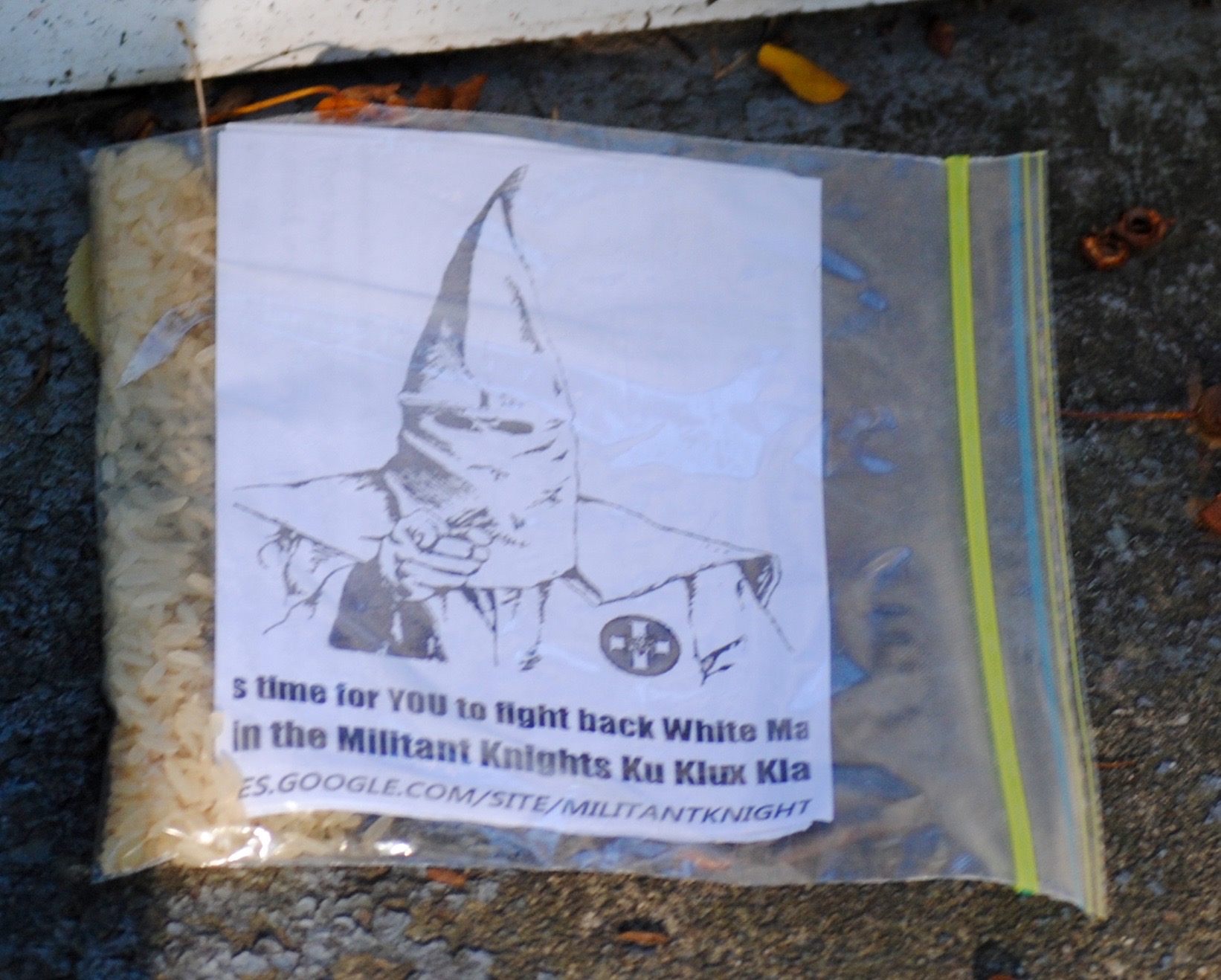
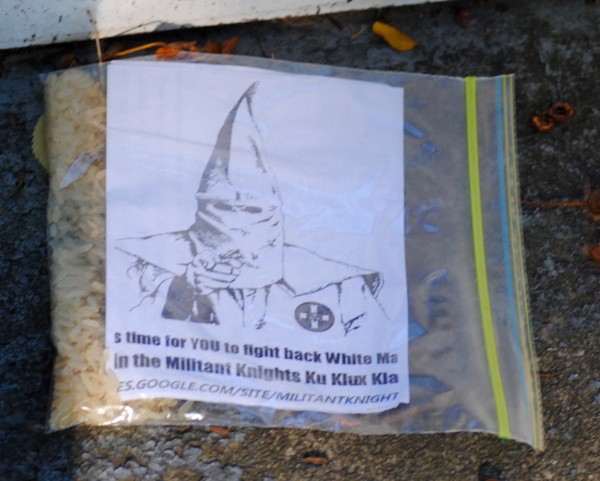
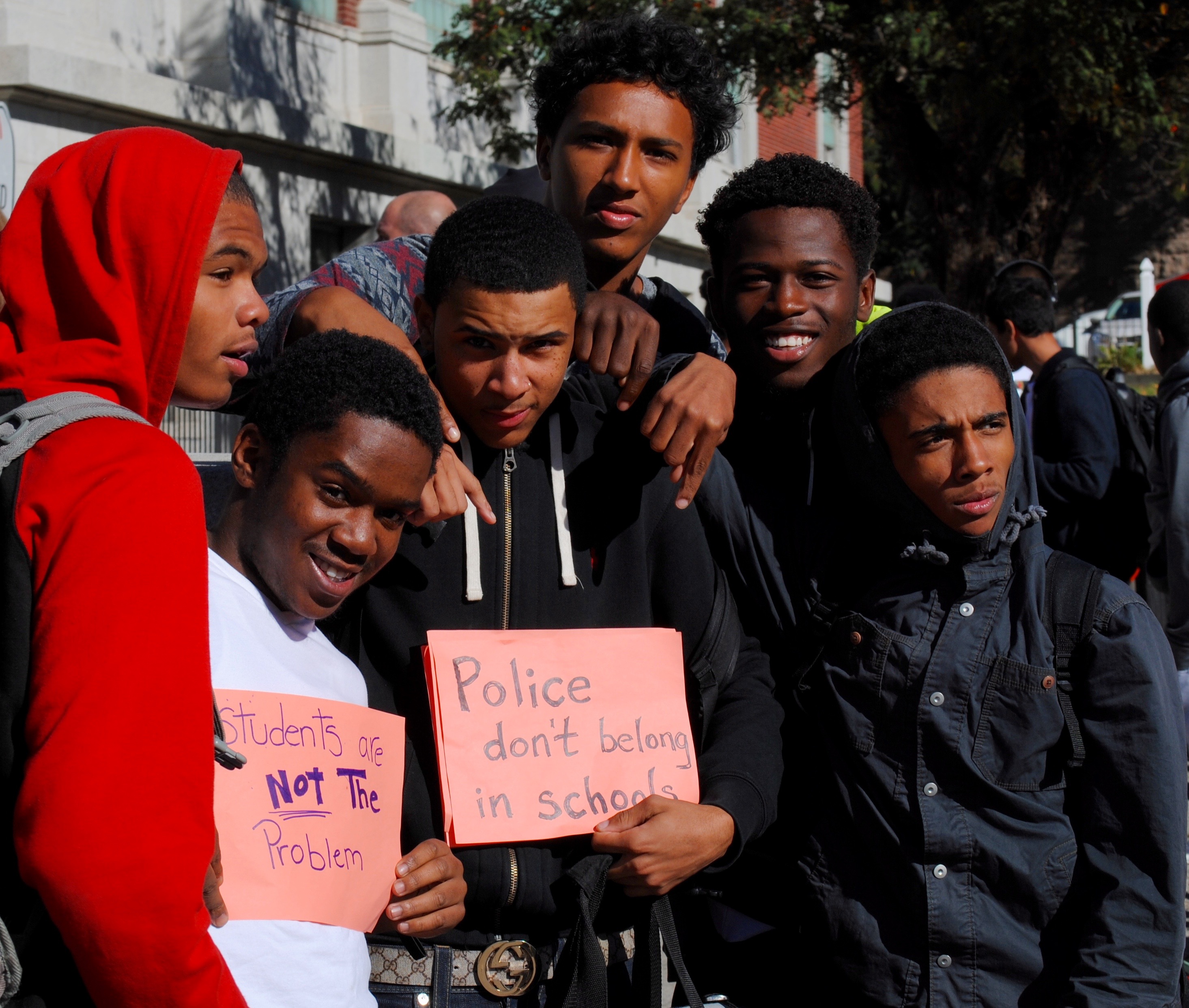
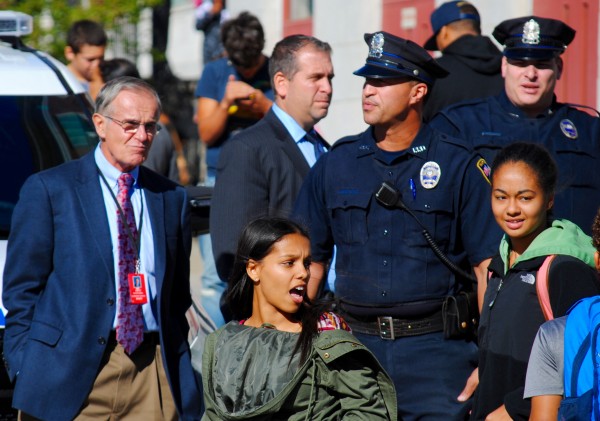
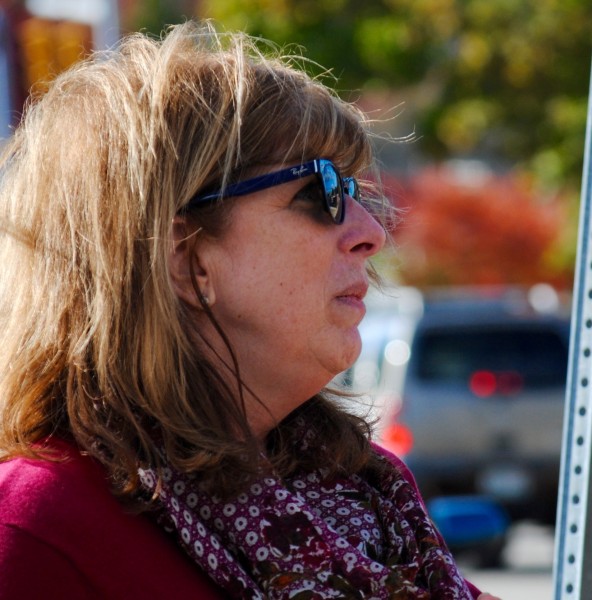
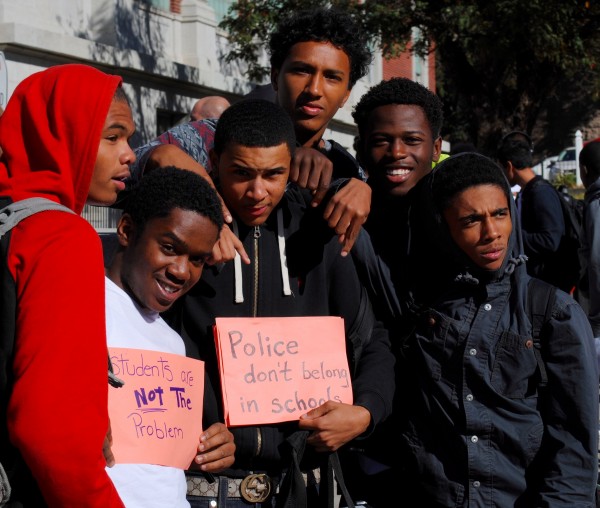
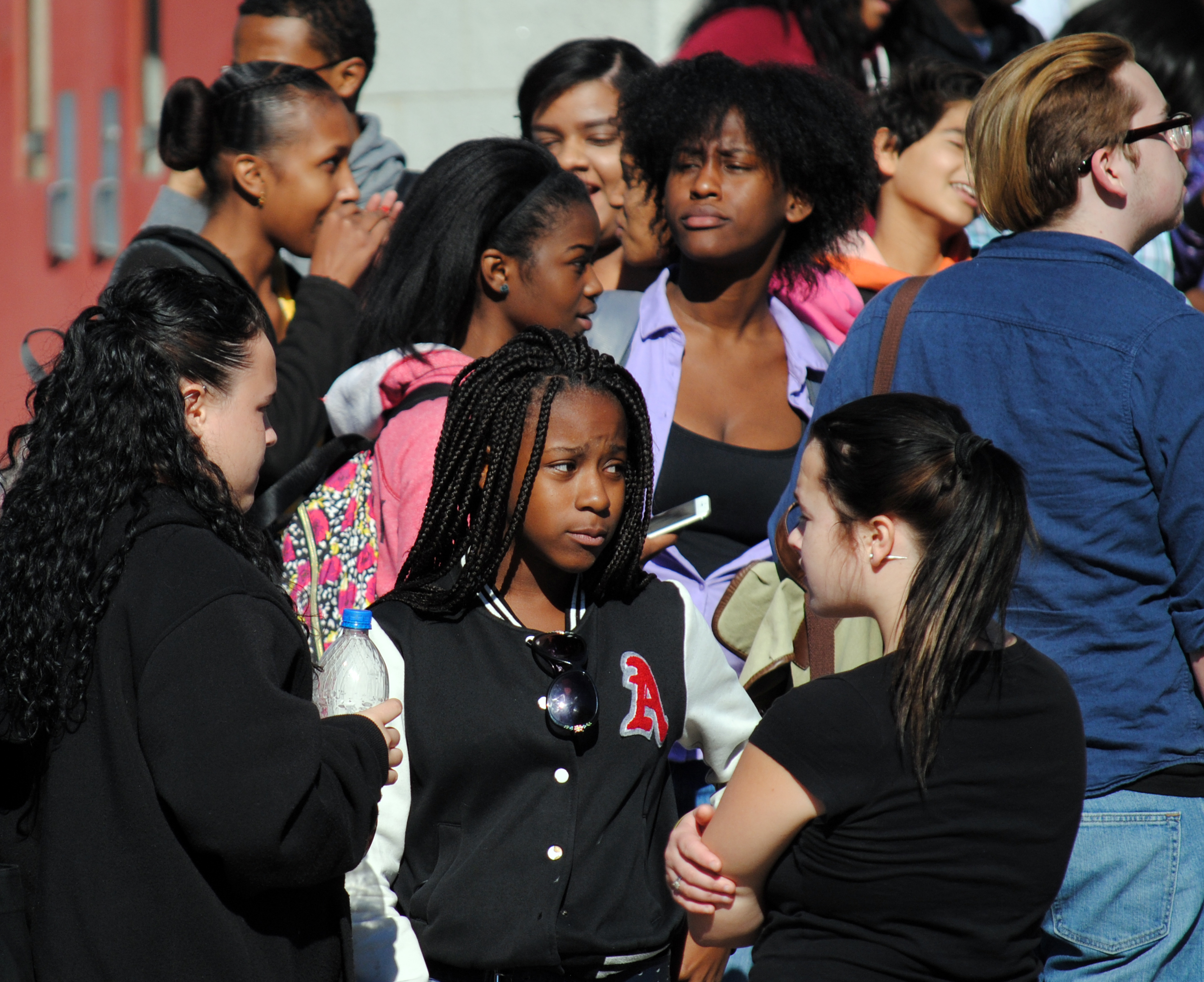
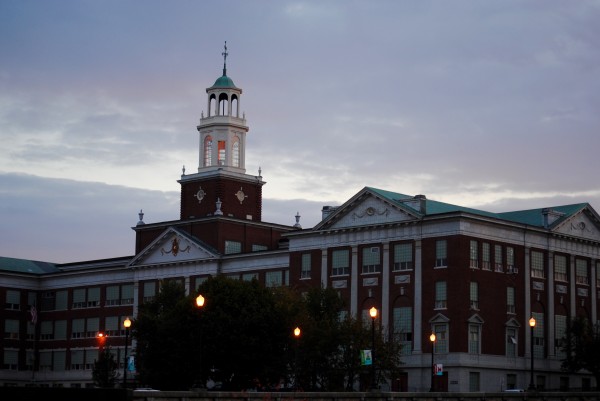
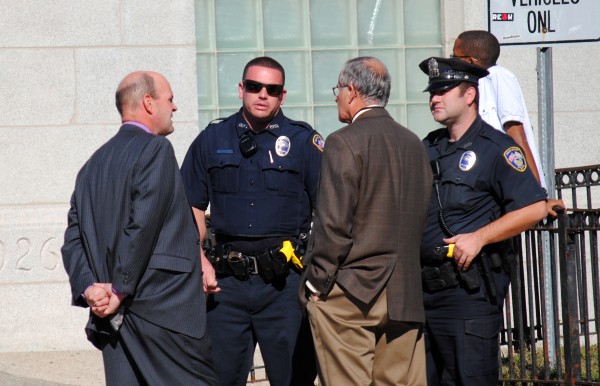 Students involved in the protest were told that they were not allowed to have cellphones on their person while in school that day. “They didn’t want us communicating with people outside,” said the student.
Students involved in the protest were told that they were not allowed to have cellphones on their person while in school that day. “They didn’t want us communicating with people outside,” said the student.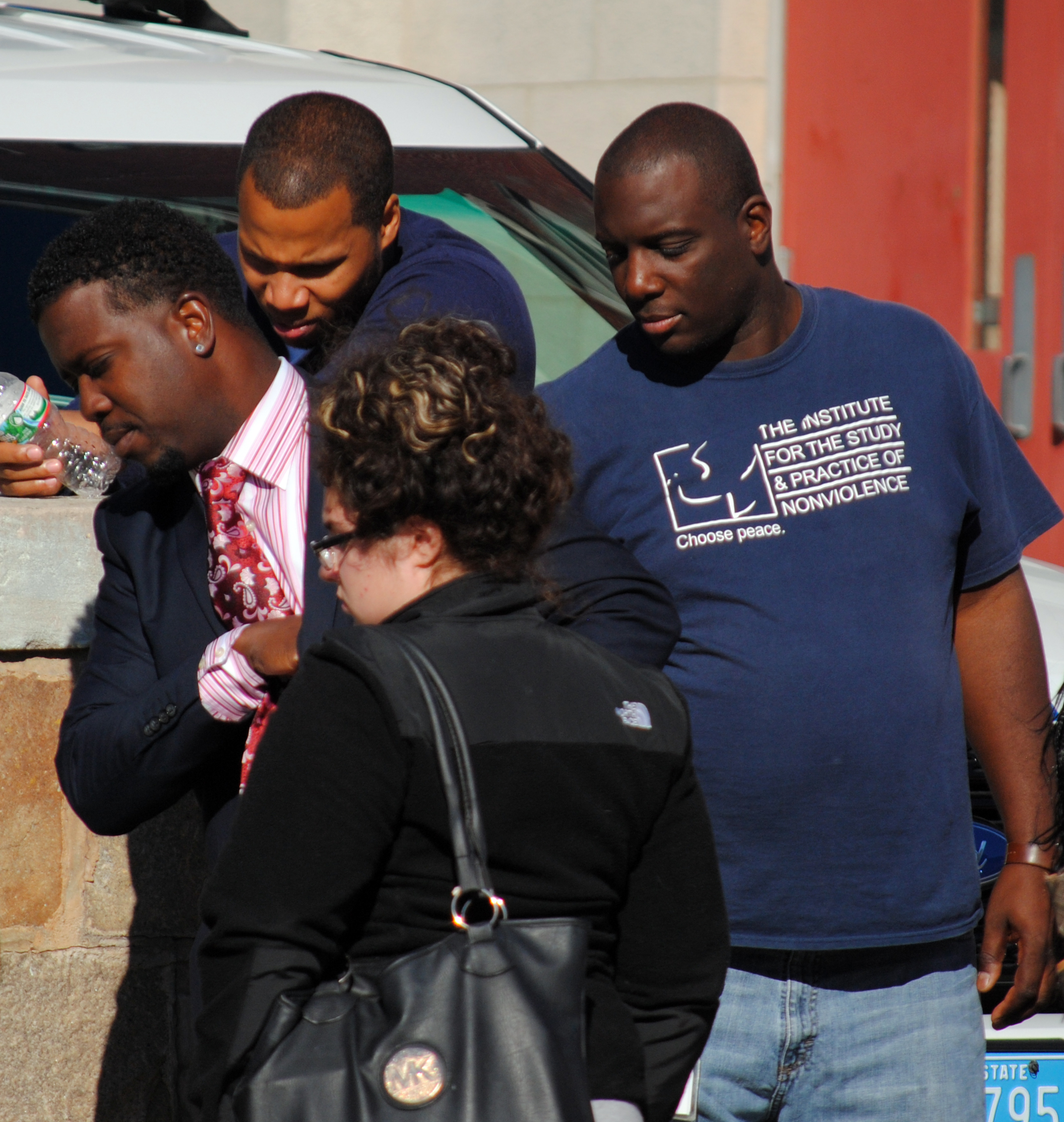
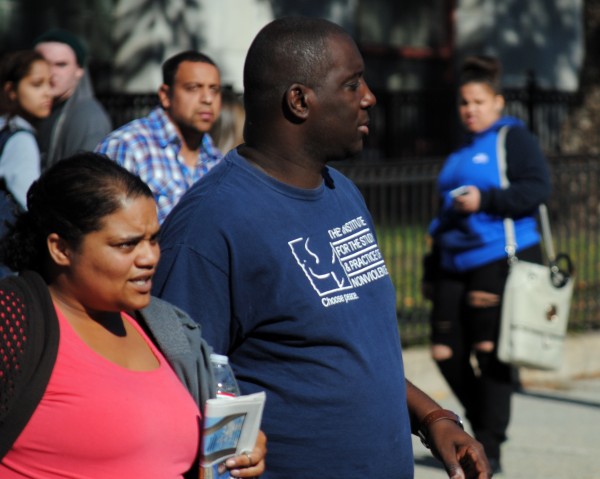 Since the incident yesterday at Tolman High School in Pawtucket, in which a resource officer aggressively arrested a student by grabbing him from behind and slamming him to the ground, the situation has been escalating. The incident was
Since the incident yesterday at Tolman High School in Pawtucket, in which a resource officer aggressively arrested a student by grabbing him from behind and slamming him to the ground, the situation has been escalating. The incident was  This afternoon the media was out in force outside Tolman, as were the police. Up the street could be seen the major crimes unit in their signature windbreakers. A paddy wagon was parked near the Gamm Theater. There was even a forensic crime van parked nearby, as well as over a dozen uniformed officers.
This afternoon the media was out in force outside Tolman, as were the police. Up the street could be seen the major crimes unit in their signature windbreakers. A paddy wagon was parked near the Gamm Theater. There was even a forensic crime van parked nearby, as well as over a dozen uniformed officers.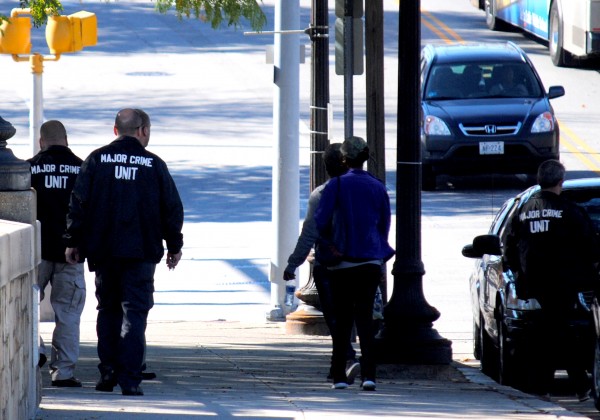 But I watched as Melissa DaRosa, an Institute street worker and others not only calm student’s concerns but also assured them that their voice would be heard at meetings with school officials, Mayor Don Grebien and the Pawtucket police. The Institute streetworkers were there to guide the students and help channel the anger into constructive organizing and community power.
But I watched as Melissa DaRosa, an Institute street worker and others not only calm student’s concerns but also assured them that their voice would be heard at meetings with school officials, Mayor Don Grebien and the Pawtucket police. The Institute streetworkers were there to guide the students and help channel the anger into constructive organizing and community power.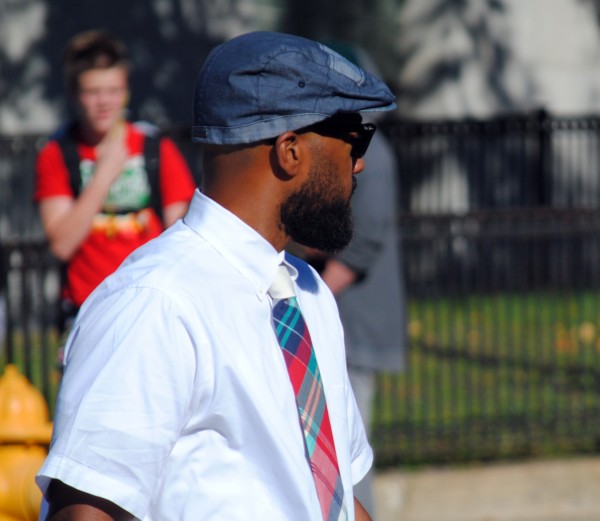
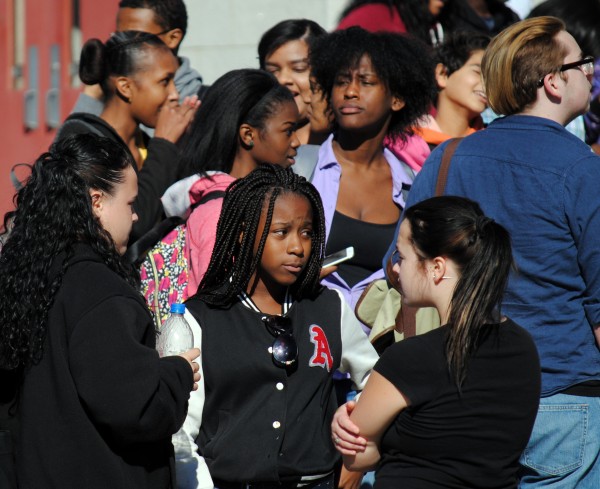

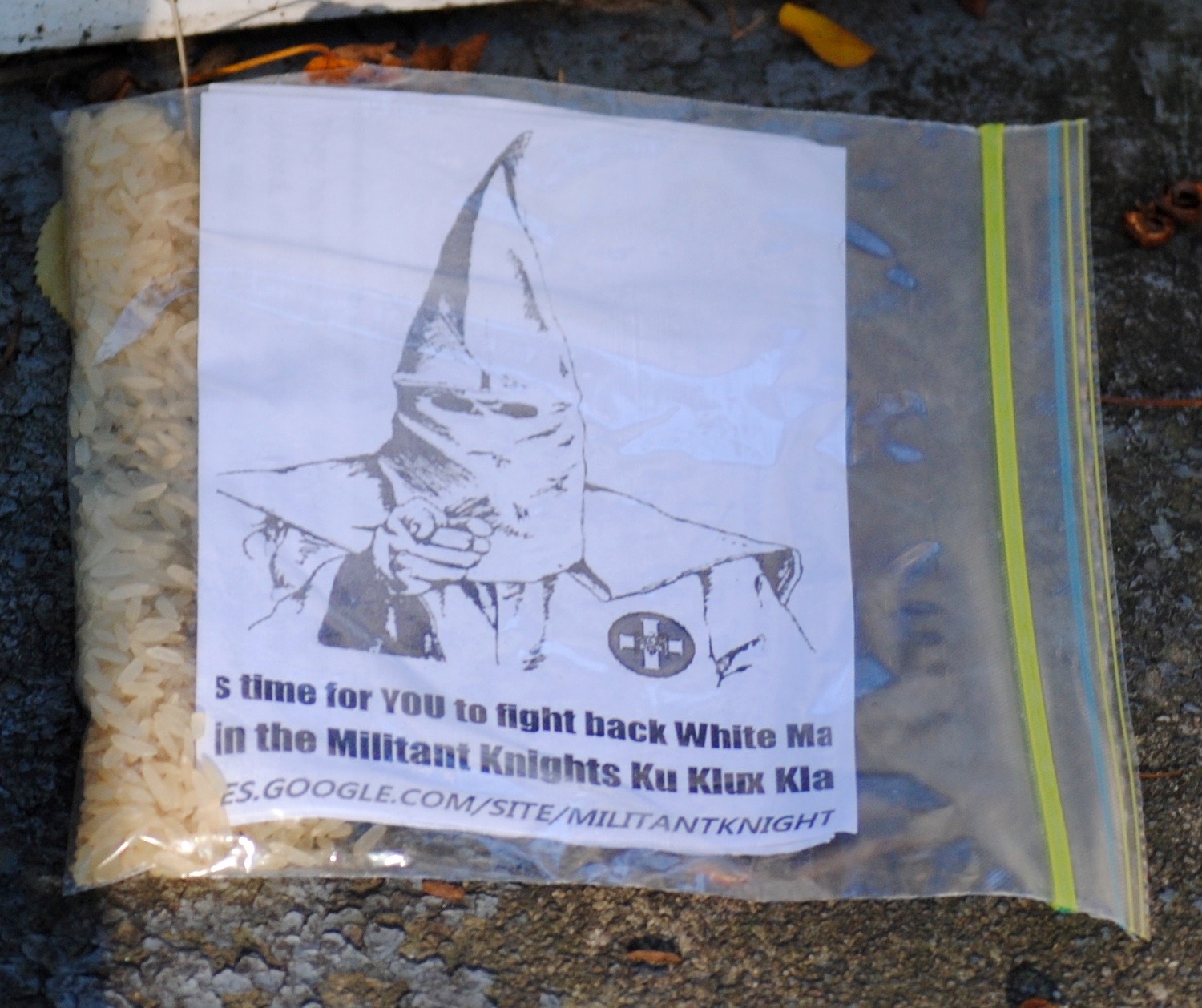
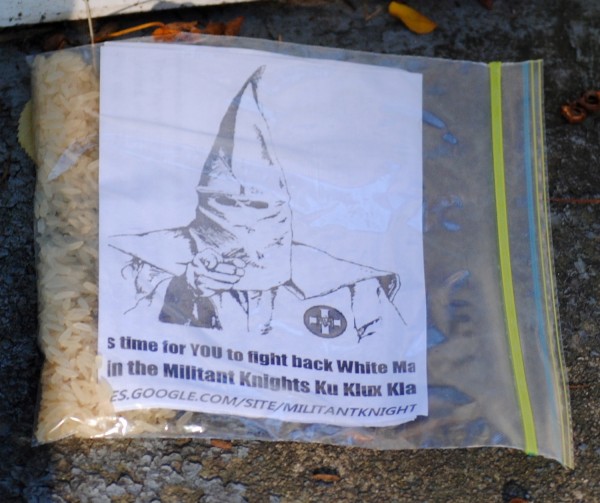 Fifteen plastic sandwich bags containing racist and anti-semitic literature and weighed down with white rice were left on the doorsteps and sidewalks of East Side homes in Providence over night and discovered early Thursday morning by residents. Fire and police responded by cutting off access to Methyl St and part of Lorimer Ave. They were treating the material as a Level 1 hazard pending test results.
Fifteen plastic sandwich bags containing racist and anti-semitic literature and weighed down with white rice were left on the doorsteps and sidewalks of East Side homes in Providence over night and discovered early Thursday morning by residents. Fire and police responded by cutting off access to Methyl St and part of Lorimer Ave. They were treating the material as a Level 1 hazard pending test results.
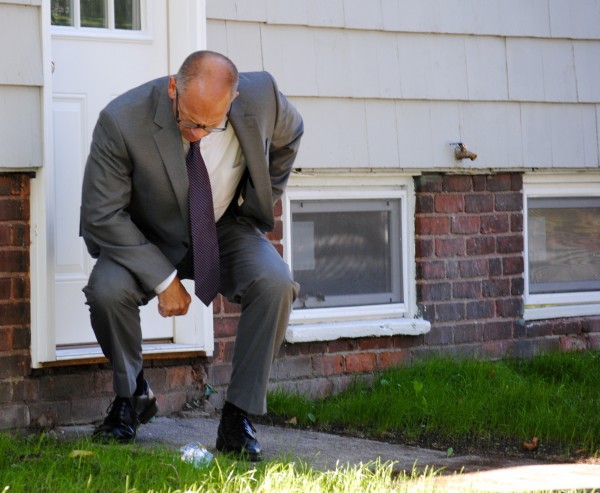
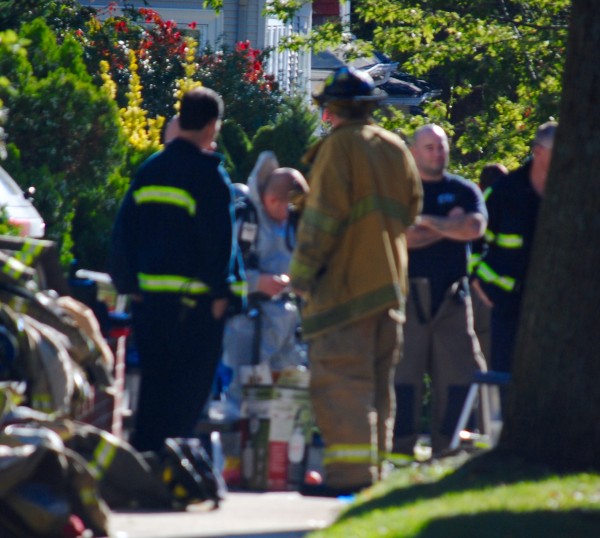
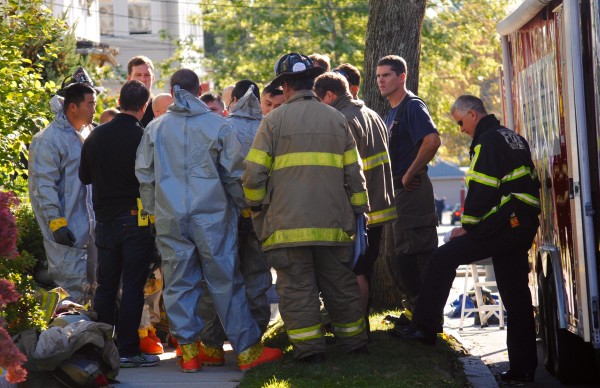
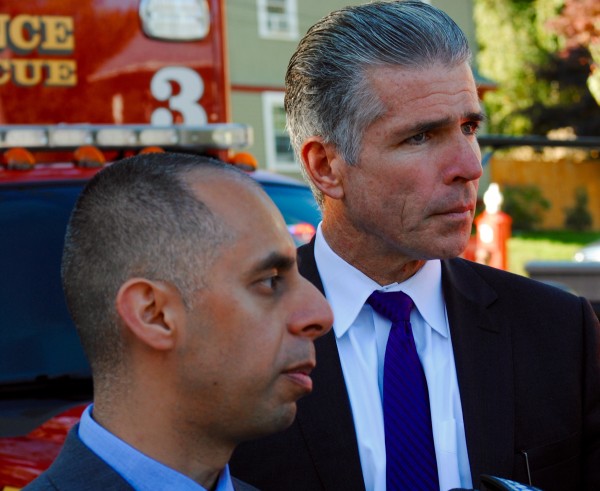
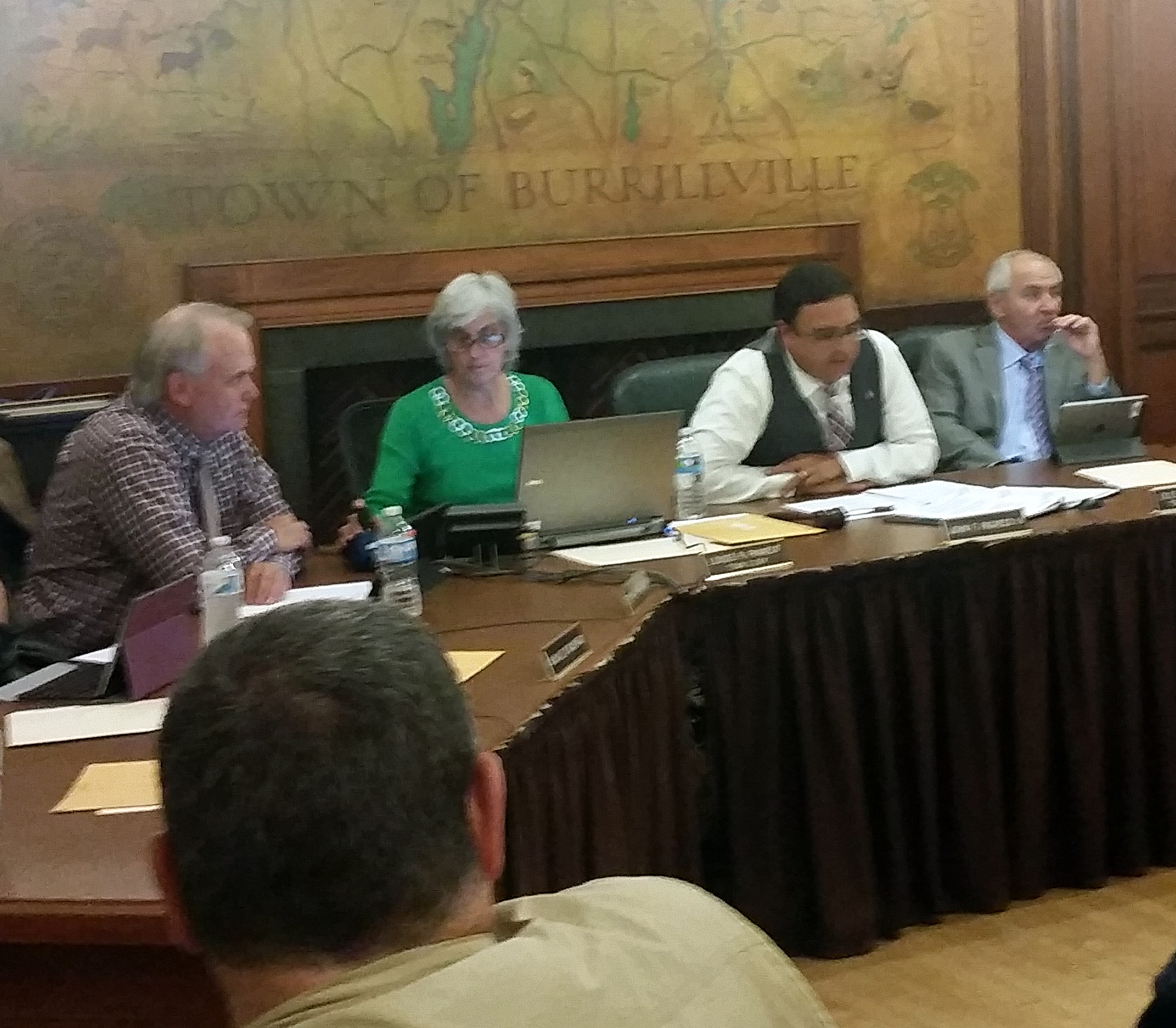
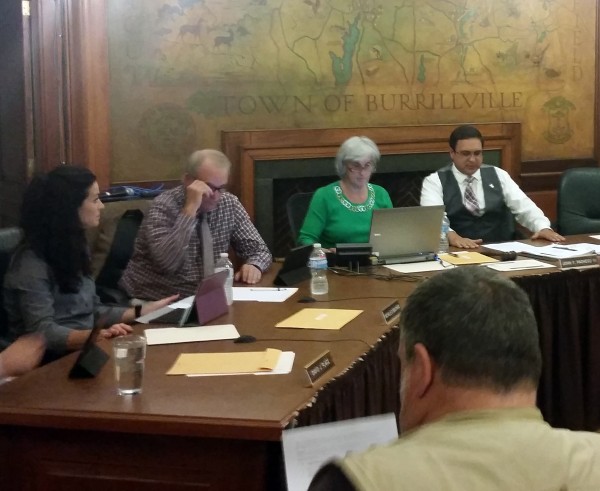 More than 50 people packed the Burrillville Town Council chamber to register their objection to the Spectra energy pipeline expansion and the new $700 million “Clear River” methane power plant that’s proposed for Wallum Lake Road by Invenergy. Kathy Martley, of Burrillville Against Spectra Expansion (BASE), presented the town council with research she had gathered outlining the health risks and dangers of pipelines and power plants in the community.
More than 50 people packed the Burrillville Town Council chamber to register their objection to the Spectra energy pipeline expansion and the new $700 million “Clear River” methane power plant that’s proposed for Wallum Lake Road by Invenergy. Kathy Martley, of Burrillville Against Spectra Expansion (BASE), presented the town council with research she had gathered outlining the health risks and dangers of pipelines and power plants in the community.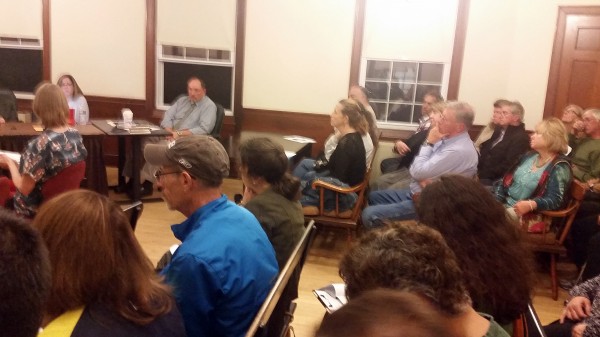 This was the refrain of the Burrillville Town Council throughout the meeting. Only FERC (the Federal Energy Regulatory Agency) can regulate Spectra, claims the town council. Spectra doesn’t even have to obey the town’s noise ordinances. “We don’t have control over Spectra and we can’t enforce local ordinances” against them, said Town Councilor David Place.
This was the refrain of the Burrillville Town Council throughout the meeting. Only FERC (the Federal Energy Regulatory Agency) can regulate Spectra, claims the town council. Spectra doesn’t even have to obey the town’s noise ordinances. “We don’t have control over Spectra and we can’t enforce local ordinances” against them, said Town Councilor David Place.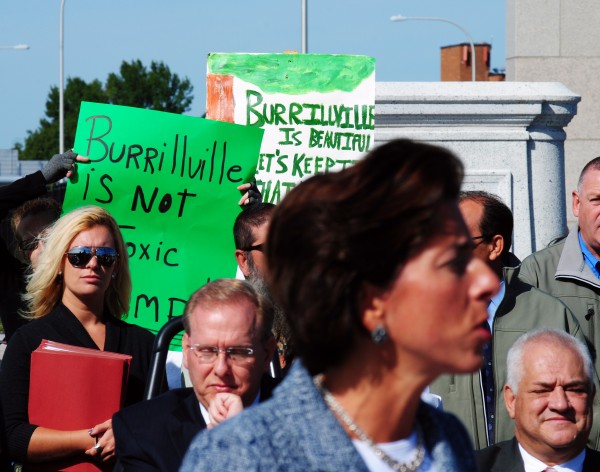

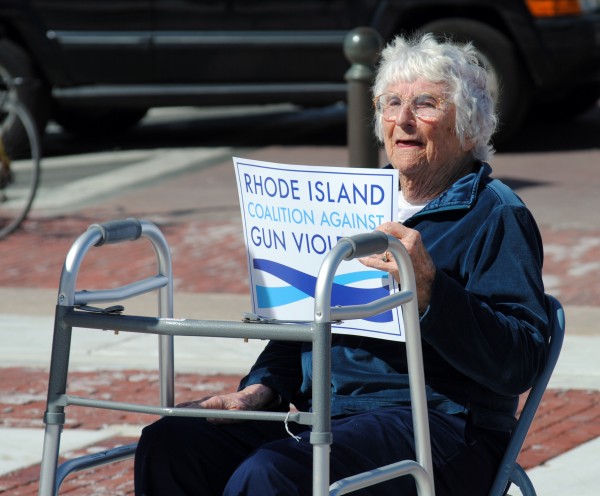 Congressman Jim Langevin and State Representative Teresa Tanzi will be the guests at a RI Coalition Against Gun Violence (RICAGV) fundraiser Thursday evening. Senator Sheldon Whitehouse is the honorary host, but is unable to attend. The event is taking place at a private residence and tickets are $50 per person. Contact
Congressman Jim Langevin and State Representative Teresa Tanzi will be the guests at a RI Coalition Against Gun Violence (RICAGV) fundraiser Thursday evening. Senator Sheldon Whitehouse is the honorary host, but is unable to attend. The event is taking place at a private residence and tickets are $50 per person. Contact 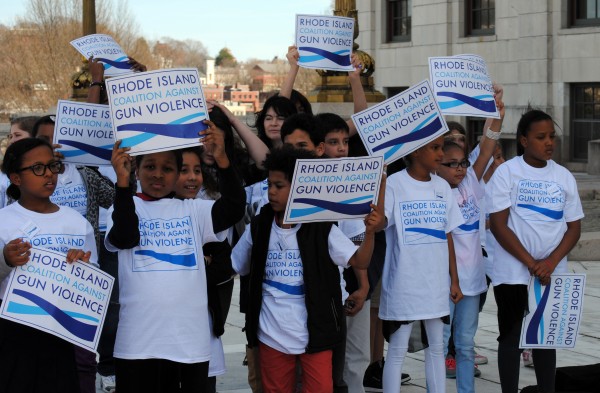 Based on the first Democratic Party presidential debate it seems that a taste is developing for taking on the NRA with both Hilary Clinton and Martin O’Malley claiming the group as a political enemy. Even Bernie Sanders, thought to be “soft on guns” has a D- rating with the NRA and has consistently called for the kind of common sense legislation the RICAGV has been calling for in Rhode Island.
Based on the first Democratic Party presidential debate it seems that a taste is developing for taking on the NRA with both Hilary Clinton and Martin O’Malley claiming the group as a political enemy. Even Bernie Sanders, thought to be “soft on guns” has a D- rating with the NRA and has consistently called for the kind of common sense legislation the RICAGV has been calling for in Rhode Island.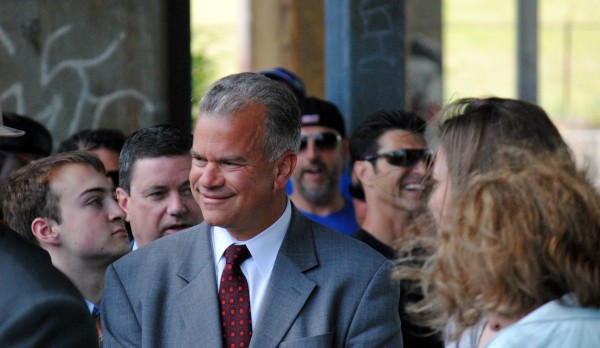

 Faye Wattleton
Faye Wattleton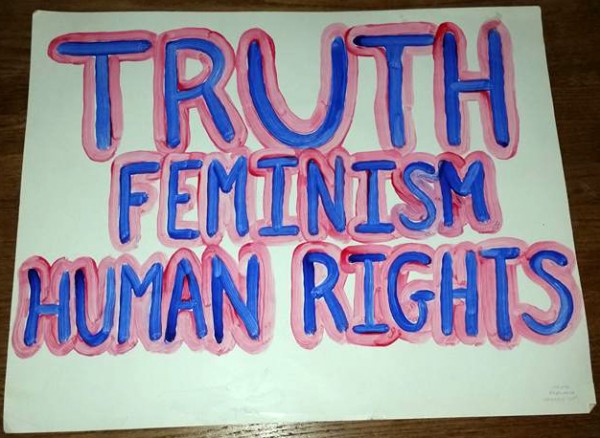 When I attended CCRI school of nursing in the late 80’s the nurse lecturer recounted the desperate lies women told in the ER to try to get a D&C. She played it for laughs. No compassion there, but later in class a woman quietly spoke of her friend who injured herself so badly trying to terminate a pregnancy that she was left sterile.
When I attended CCRI school of nursing in the late 80’s the nurse lecturer recounted the desperate lies women told in the ER to try to get a D&C. She played it for laughs. No compassion there, but later in class a woman quietly spoke of her friend who injured herself so badly trying to terminate a pregnancy that she was left sterile.






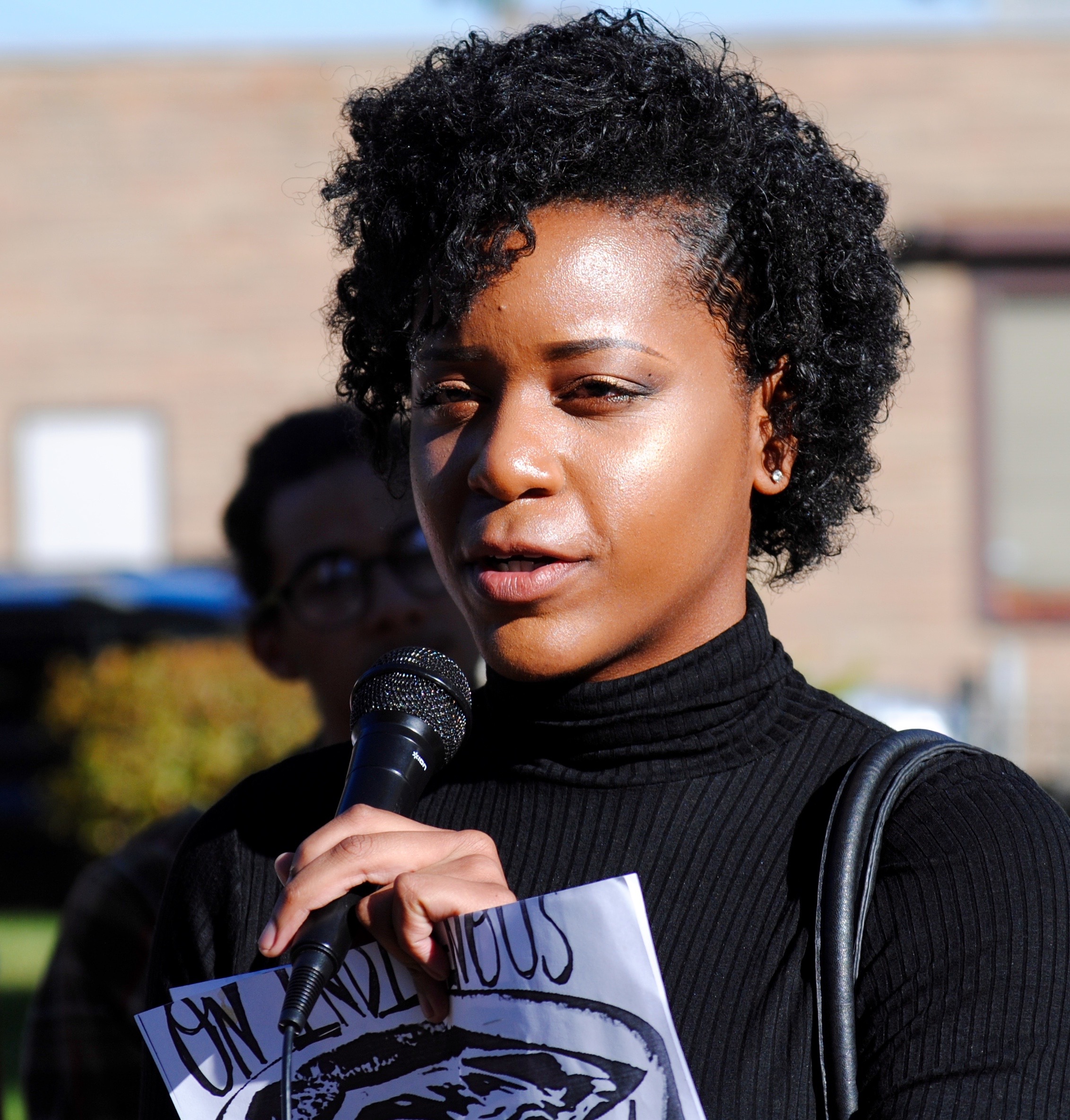
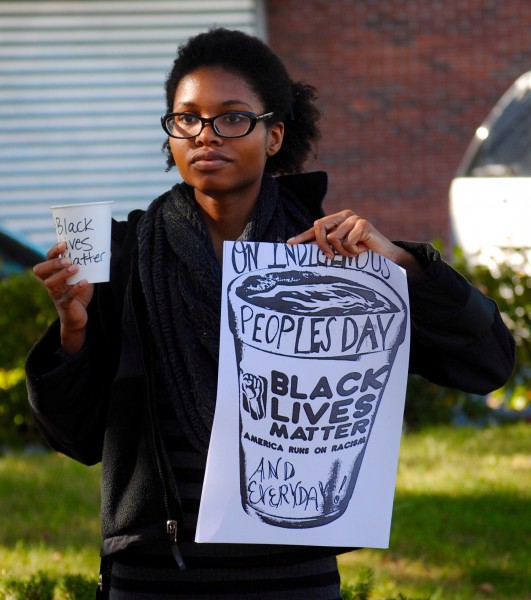 Activists and supporters gathered outside the Dunkin Donuts on Atwells Avenue where an employee wrote #BlackLivesMatter on a police officer’s coffee cup. They marched in support of the employee, a 17 year old woman of color, and against the over reaction of the Providence police union. Police officers looked on as the peaceful rally progressed.
Activists and supporters gathered outside the Dunkin Donuts on Atwells Avenue where an employee wrote #BlackLivesMatter on a police officer’s coffee cup. They marched in support of the employee, a 17 year old woman of color, and against the over reaction of the Providence police union. Police officers looked on as the peaceful rally progressed.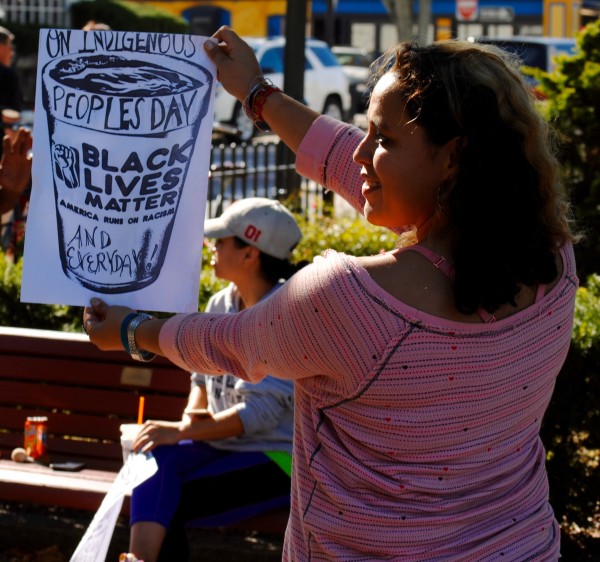 The rally was organized by the
The rally was organized by the 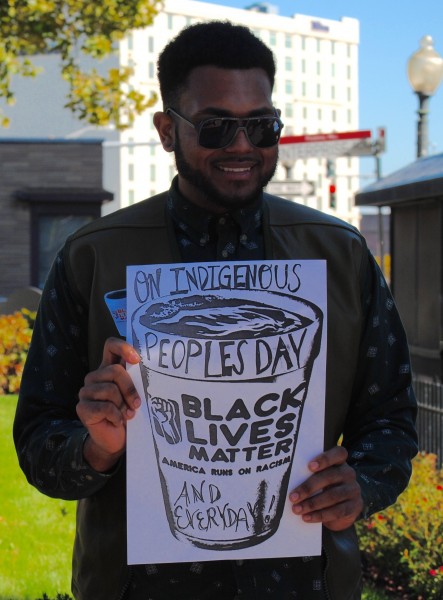 “In the face of this crisis, communities have been coming together to address a national and local state of emergency. Police brutality and state violence have lasting effects that ripple through communities and generations, effects borne in large part by Black communities and other communities of color. #BlackLivesMatter is a direct and courageous movement in response to incredibly high rates of Black people being killed by police. For some, it is easier to ignore these wide disparities; for others, it is an inescapable, daily reality.
“In the face of this crisis, communities have been coming together to address a national and local state of emergency. Police brutality and state violence have lasting effects that ripple through communities and generations, effects borne in large part by Black communities and other communities of color. #BlackLivesMatter is a direct and courageous movement in response to incredibly high rates of Black people being killed by police. For some, it is easier to ignore these wide disparities; for others, it is an inescapable, daily reality.